The best 75-inch TVs 2025, all tested by our big-screen experts
The best 75-inch TVs offer a true home theater experience
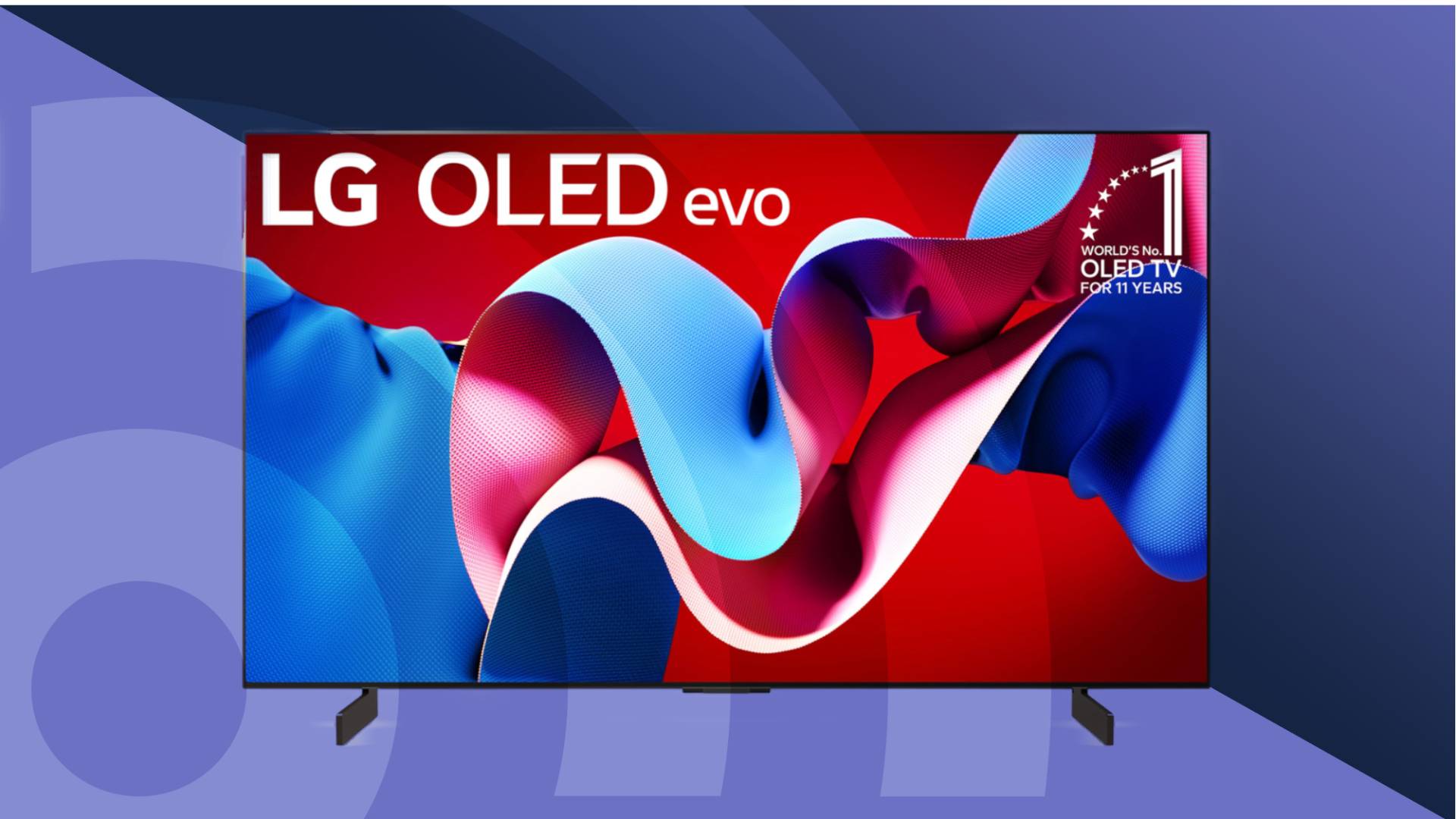
When it comes to getting a cinematic experience, the best 75-inch TVs can deliver something significantly closer to what you'd see at the cinema when stacked up against smaller models.
Having a TV of this size really has its advantages. Not only are details more noticeable thanks to the super-sized image, but you'll typically see brighter images with better contrast and richer colors, too.
In the past it's been prohibitively expensive to buy a 75-inch TV, because it was mostly only the very best TVs that came in these sizes. But that's not always the case these days – in fact, it's fairly easy to spot a good 75-inch TV deal every week that sees some behemoth television screen cut down in price to around what the best 65-inch TVs or best 55-inch TVs would cost.
Our guide has been designed to reflect a variety of prices, including some surprisingly affordable options as well as cutting-edge, ultra-premium home theater monsters, and we're constantly updating it as new models hit store shelves.
Let's get to the sets. Right below you'll find our guide to the best 75-inch 4K TVs you can buy in right now – including the best 8K TVs, because at this size that extra resolution really makes a difference. You'll also find many of the best OLED TVs here, though at 77 inches instead of specifically 75 inches. That's because OLED display panels are made slightly differently.
Quick list
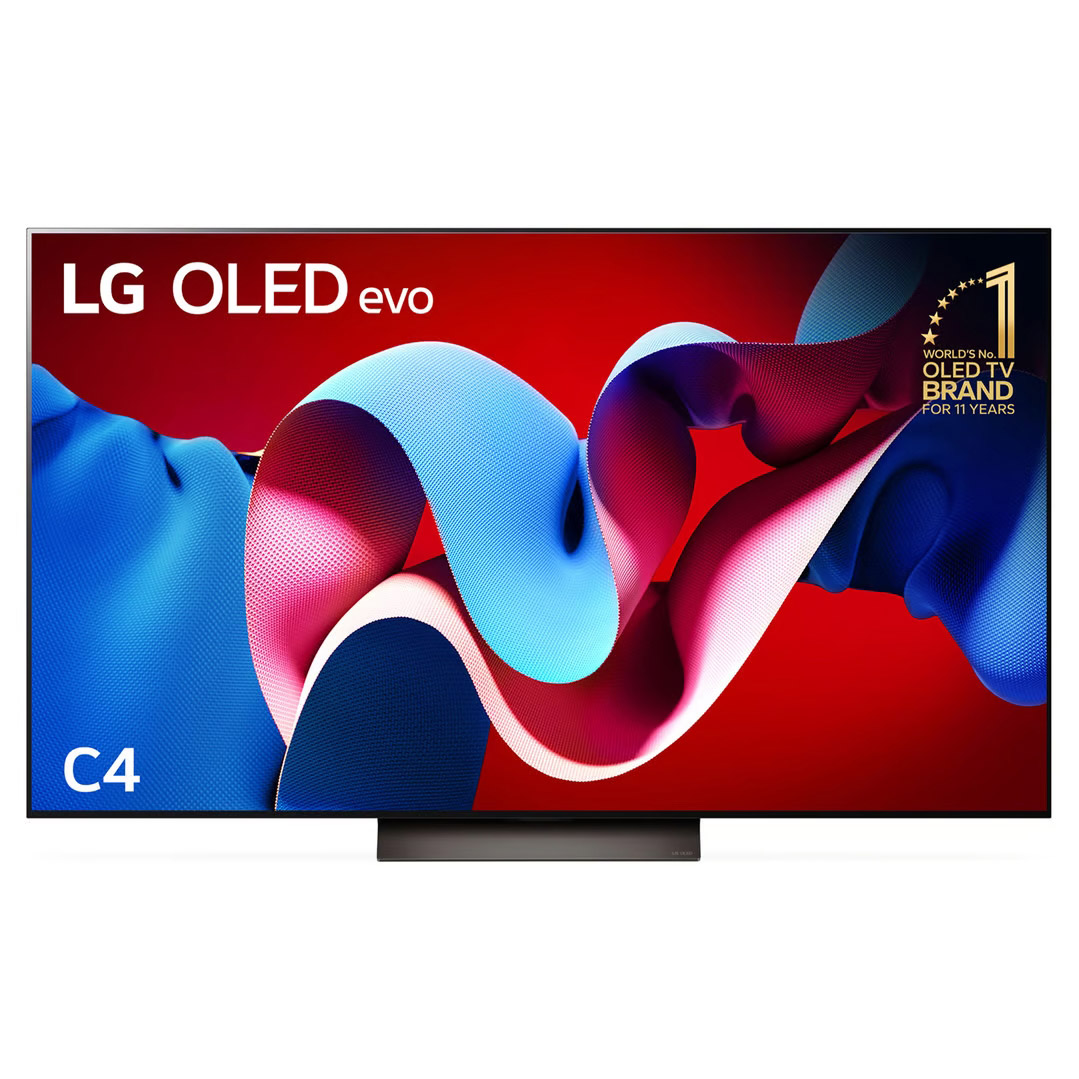
The best 75-inch for most people
Delivering superb versatility thanks to its excellent picture quality, a full suite of gaming features and best-in-class price, the LG C4 stands tall on this list.
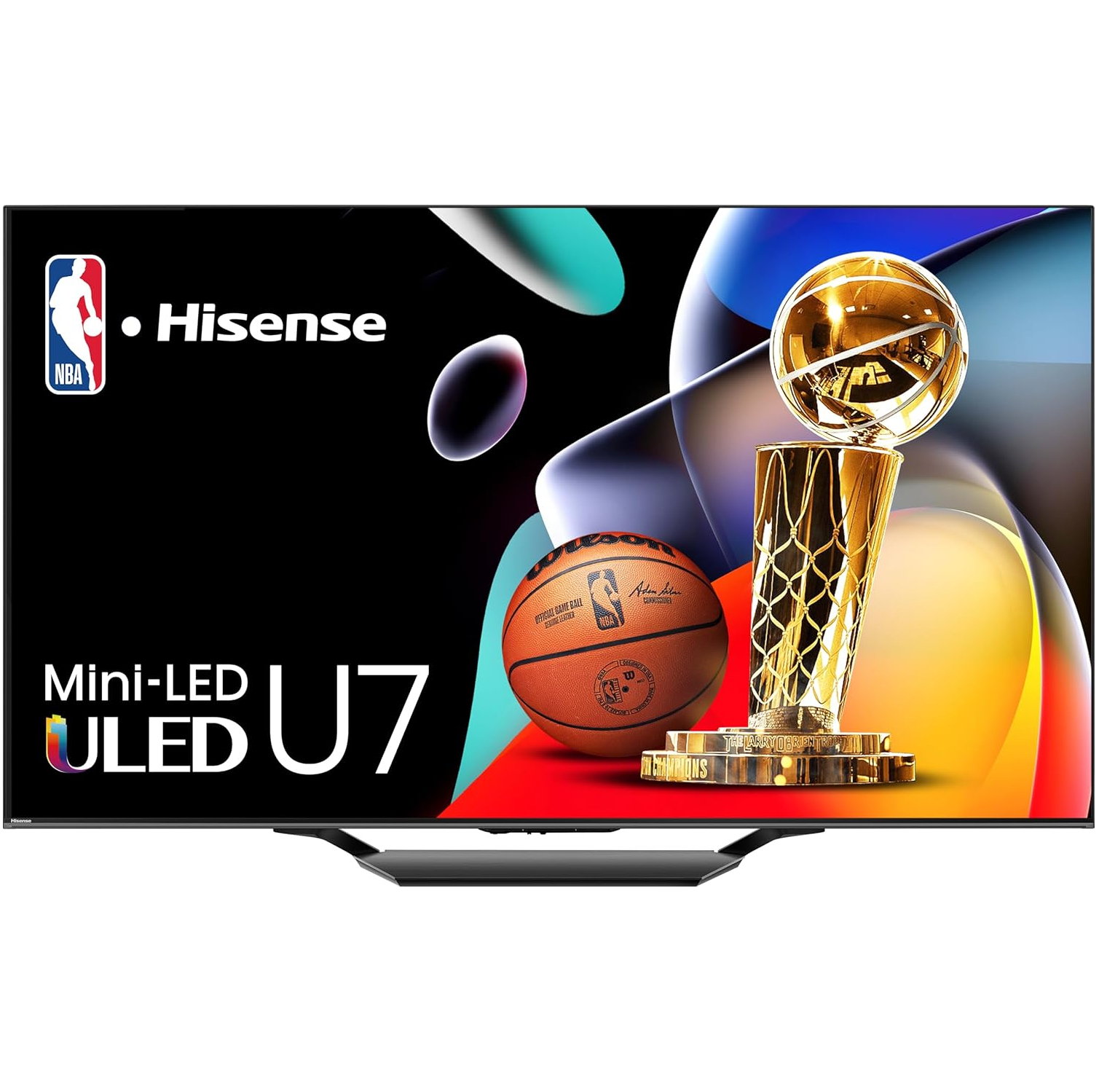
The best budget 75-inch TV in the US
Want mini-LED and plenty of features in a big-screen size without paying a premium? The U7N could be your perfect TV.
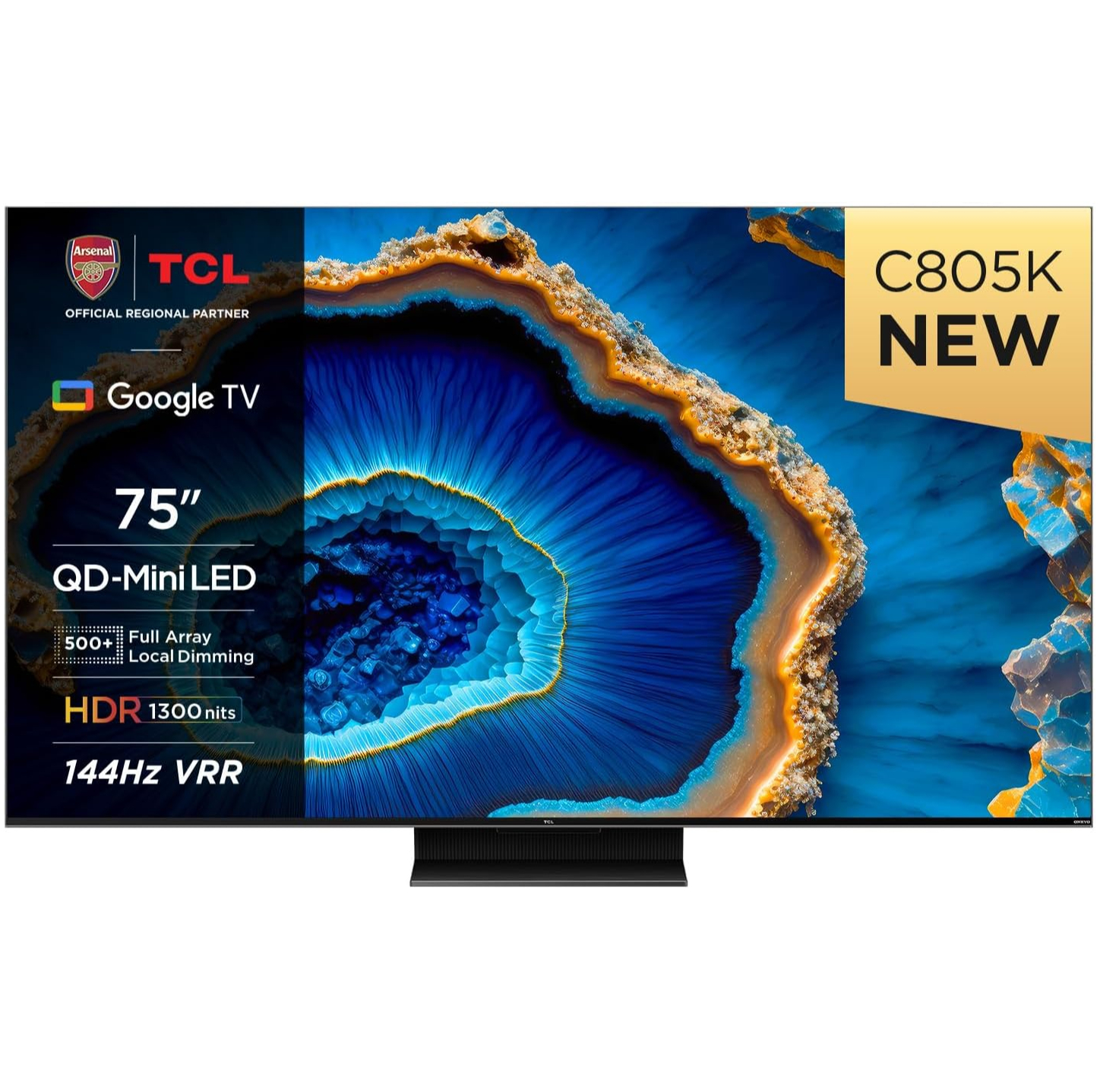
The best budget 75-inch TV in the UK
The TCL C805's mini-LED backlight lets it deliver great picture quality, and it also has impressive gaming features for a TV at this price.
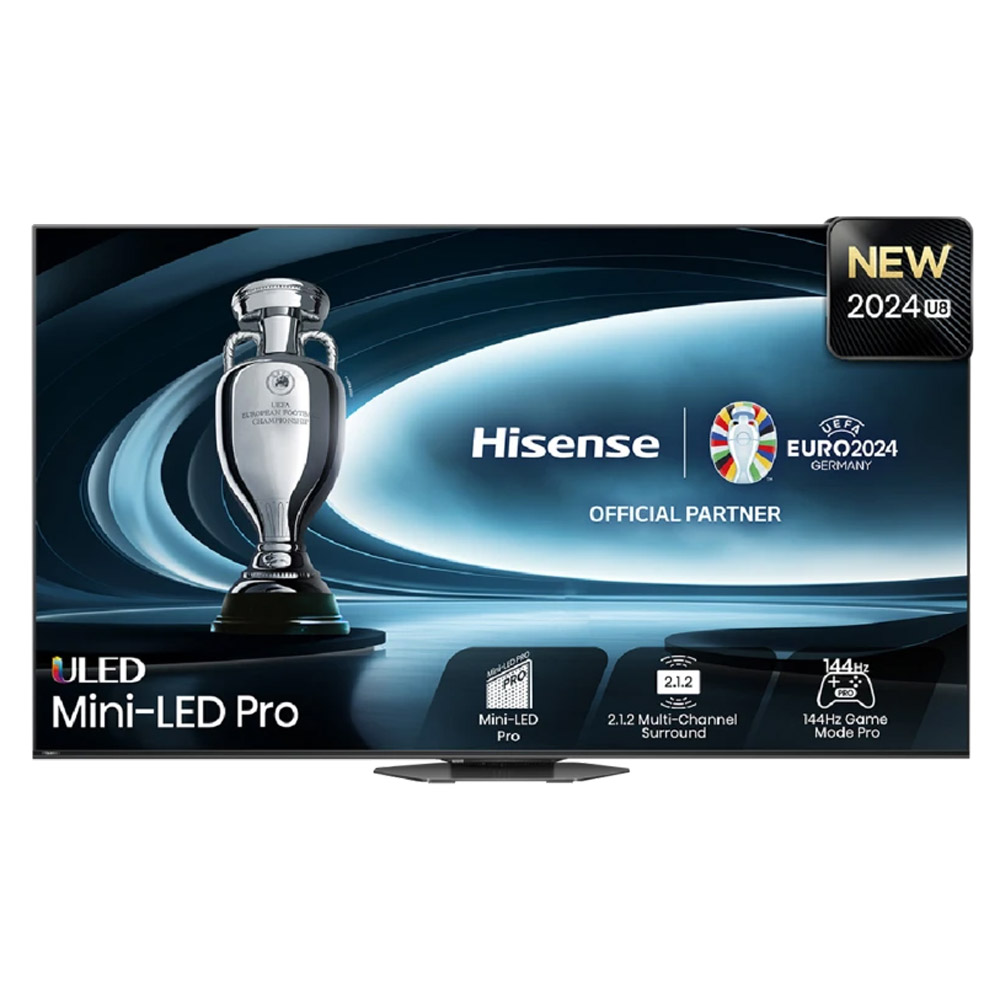
The best mid-range 75-inch TV
If you want a great TV for movies, the Hisense 75U8N rivals mini-LEDs from premium brands, like Samsung and Sony, but at a mid-range price. It's also a solid choice for big-screen gaming.
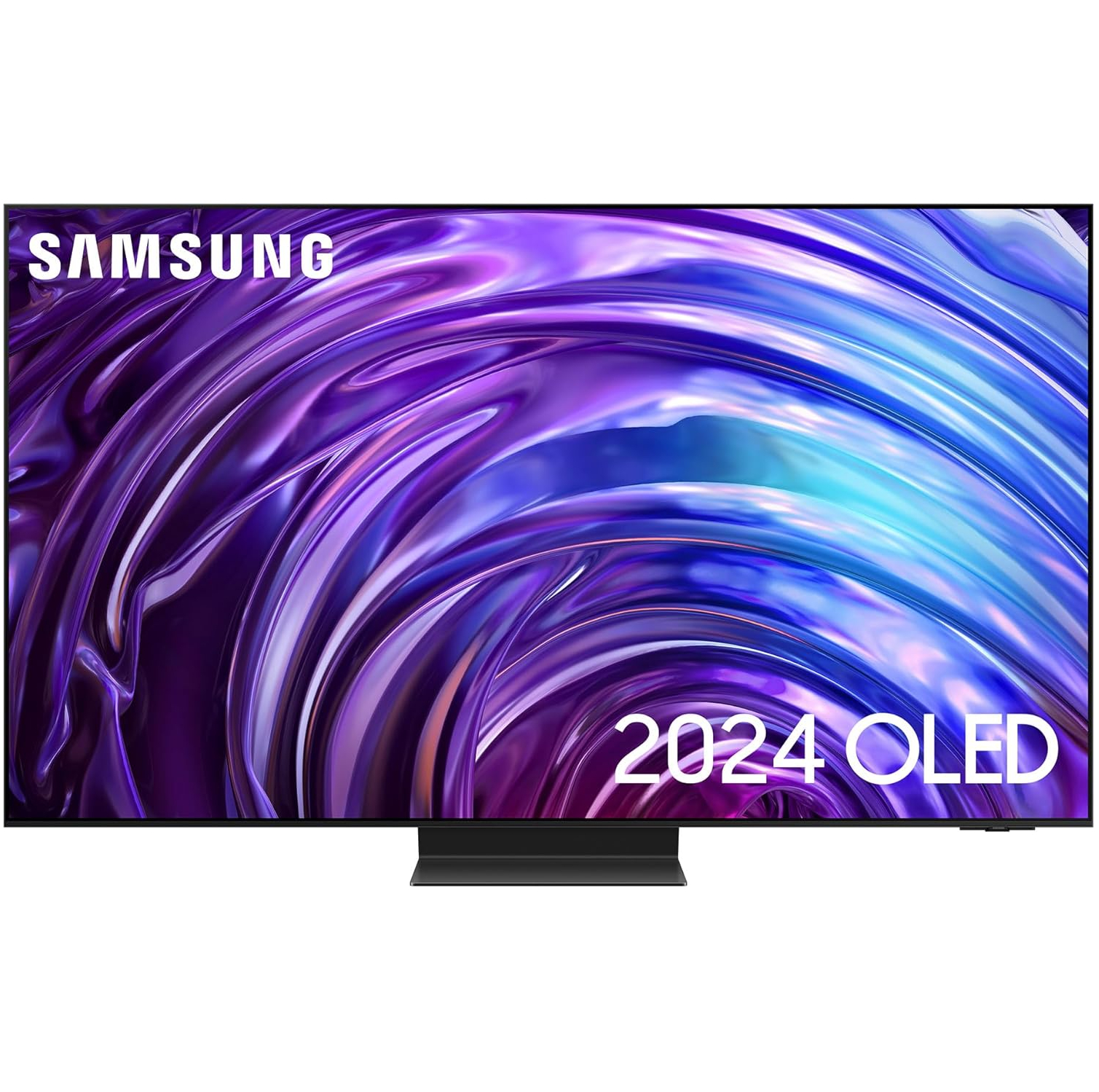
The best premium 75-inch TV
Although it comes with a price, the Samsung 77S95D feels every bit premium thanks to its outstanding picture, gaming prowess and all-around quality.
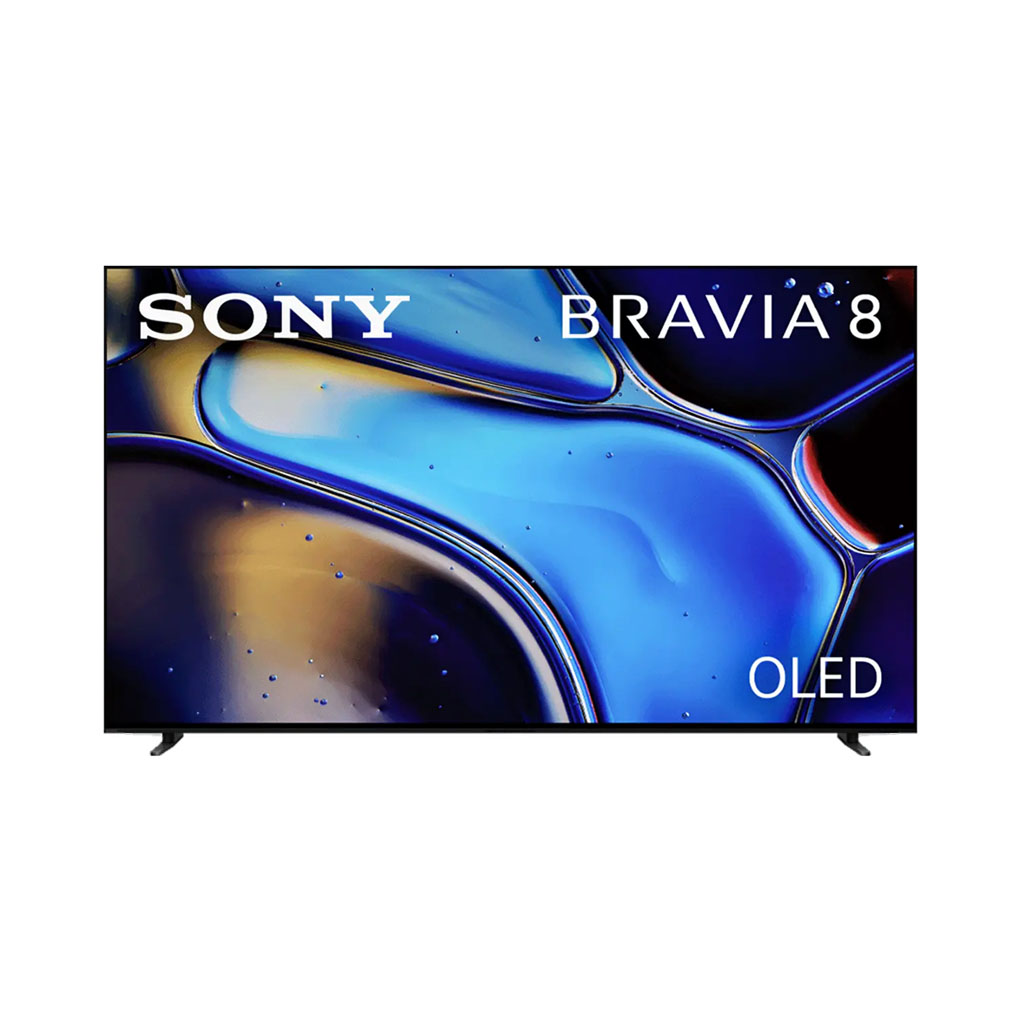
The best 75-inch TV for sound
With its ability to pass sound through the screen and its direct link between audio and what's happening on screen, the Sony Bravia 8 is ideal for those who want great built-in sound.
Load next products
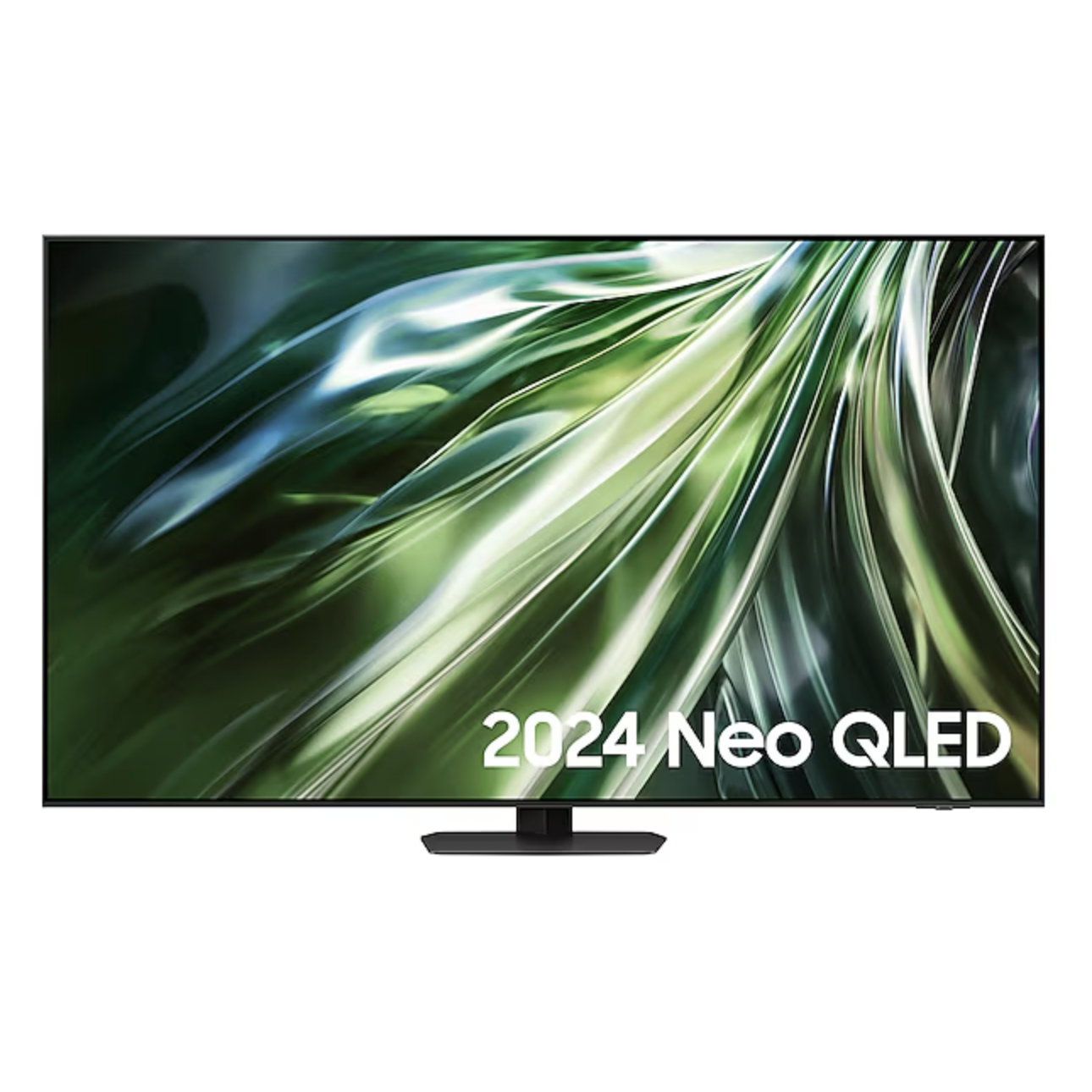
The best 75-inch TV for sports
The Samsung QN90D mini-LED may be the perfect TV for sports thanks to its superb motion handling and high full-screen brightness. It's also a great TV for gaming.

Al Griffin is TechRadar's Senior Editor for Home Entertainment in the US. Previously the editor of Sound & Vision magazine, he brings nearly three decades of tech journalism and AV product testing experience to the position. He's helped find the best 75-inch TVs available, from OLED magic to bang for your buck budget sets.
Recent updates
March 11, 2025
Added in Quick list product grid with quick summaries for each entry on the list. Added gallery of images to each entry. Added more models to the 'Other 75-inch TVs we've tested' section.
The best 75-inch TVs 2025
Why you can trust TechRadar
The best 75-inch TV overall
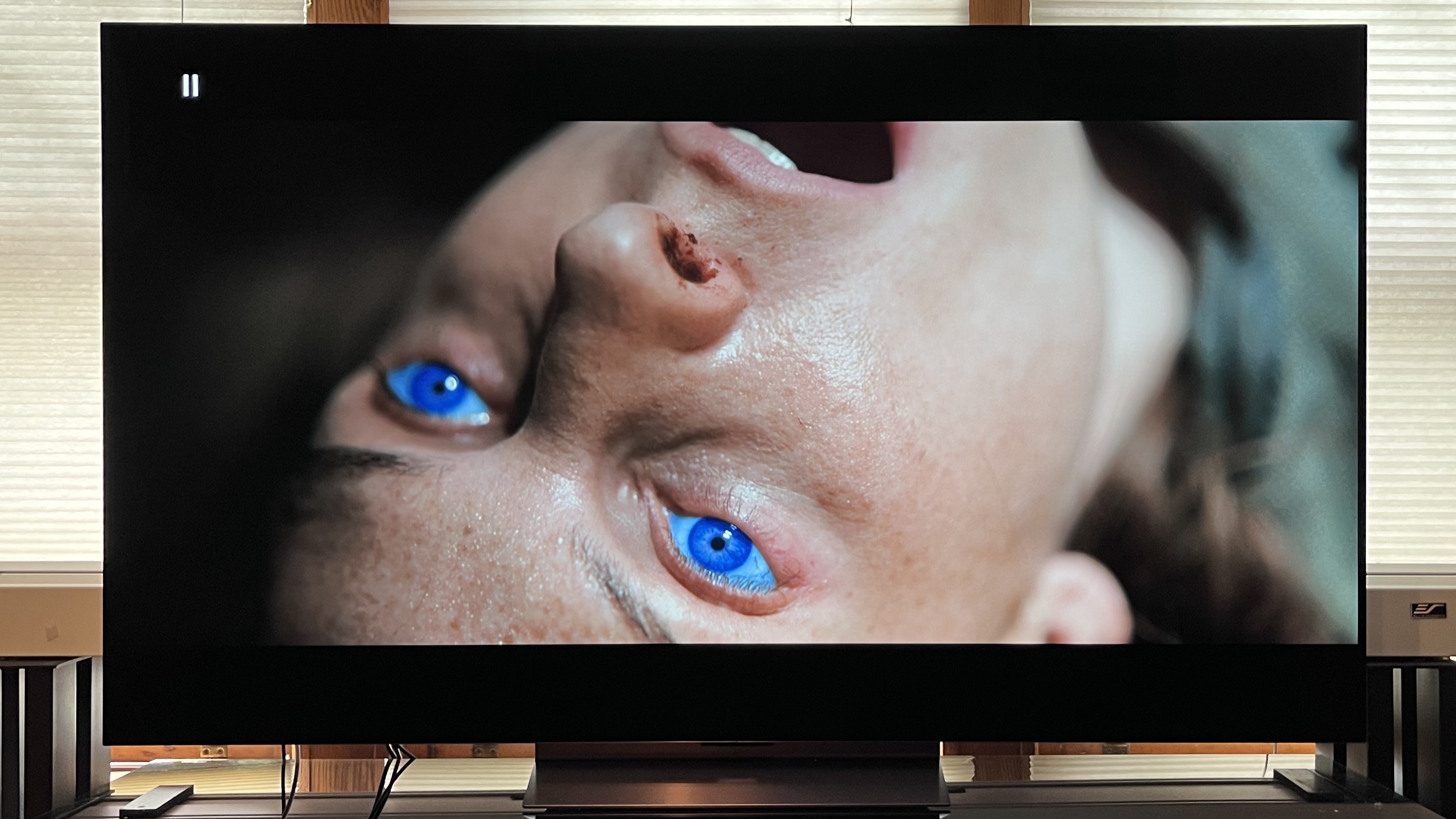
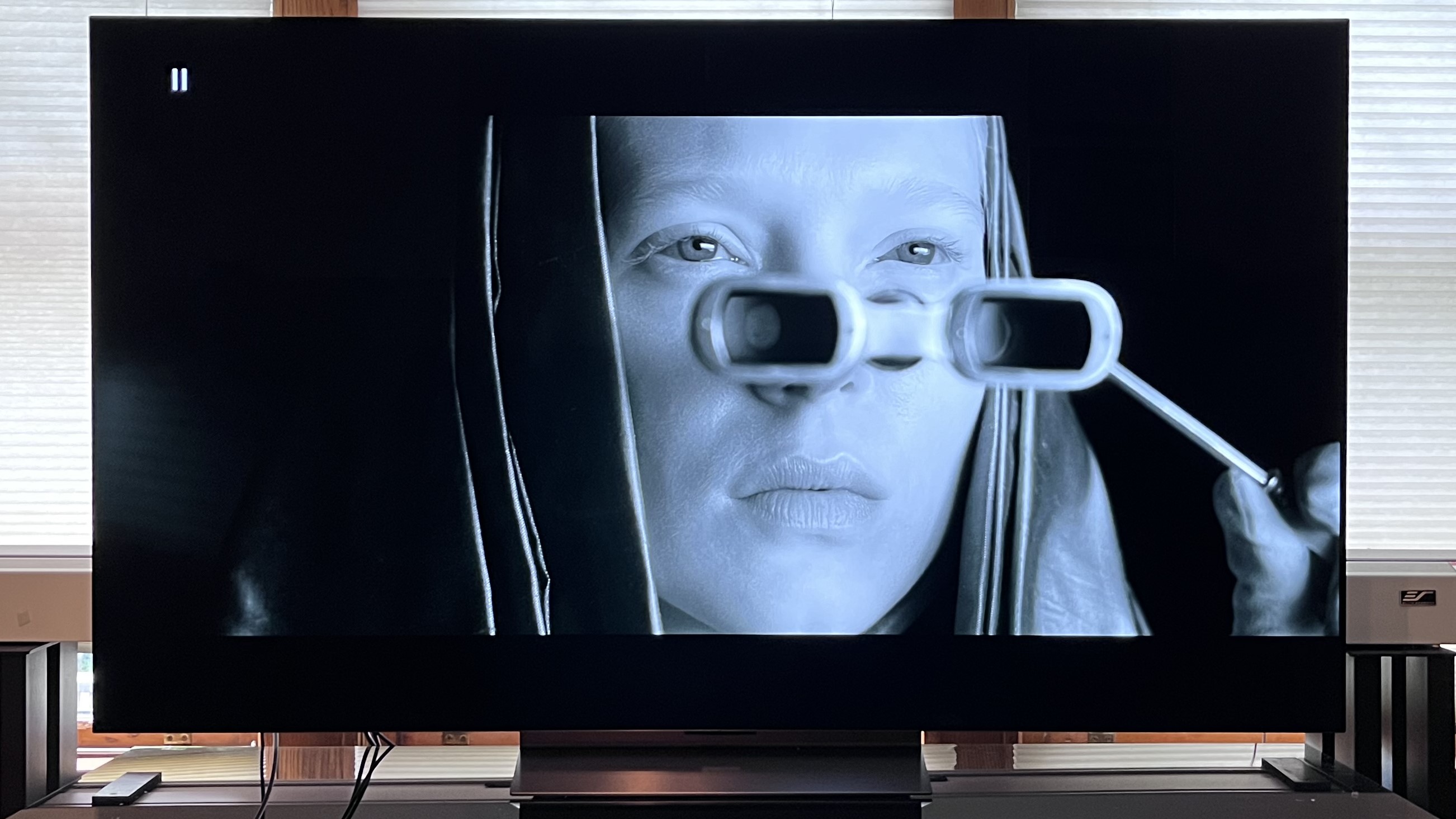
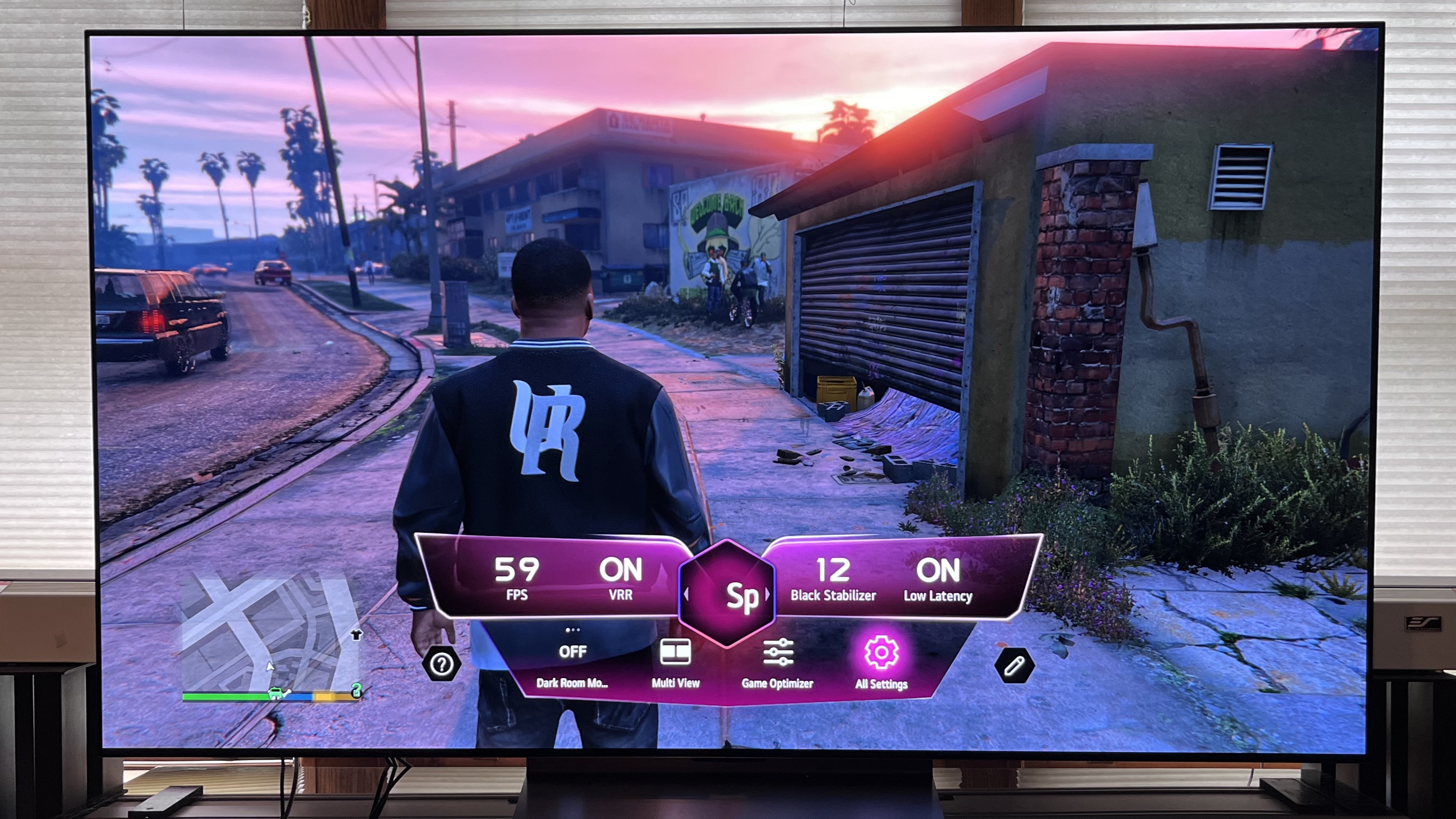
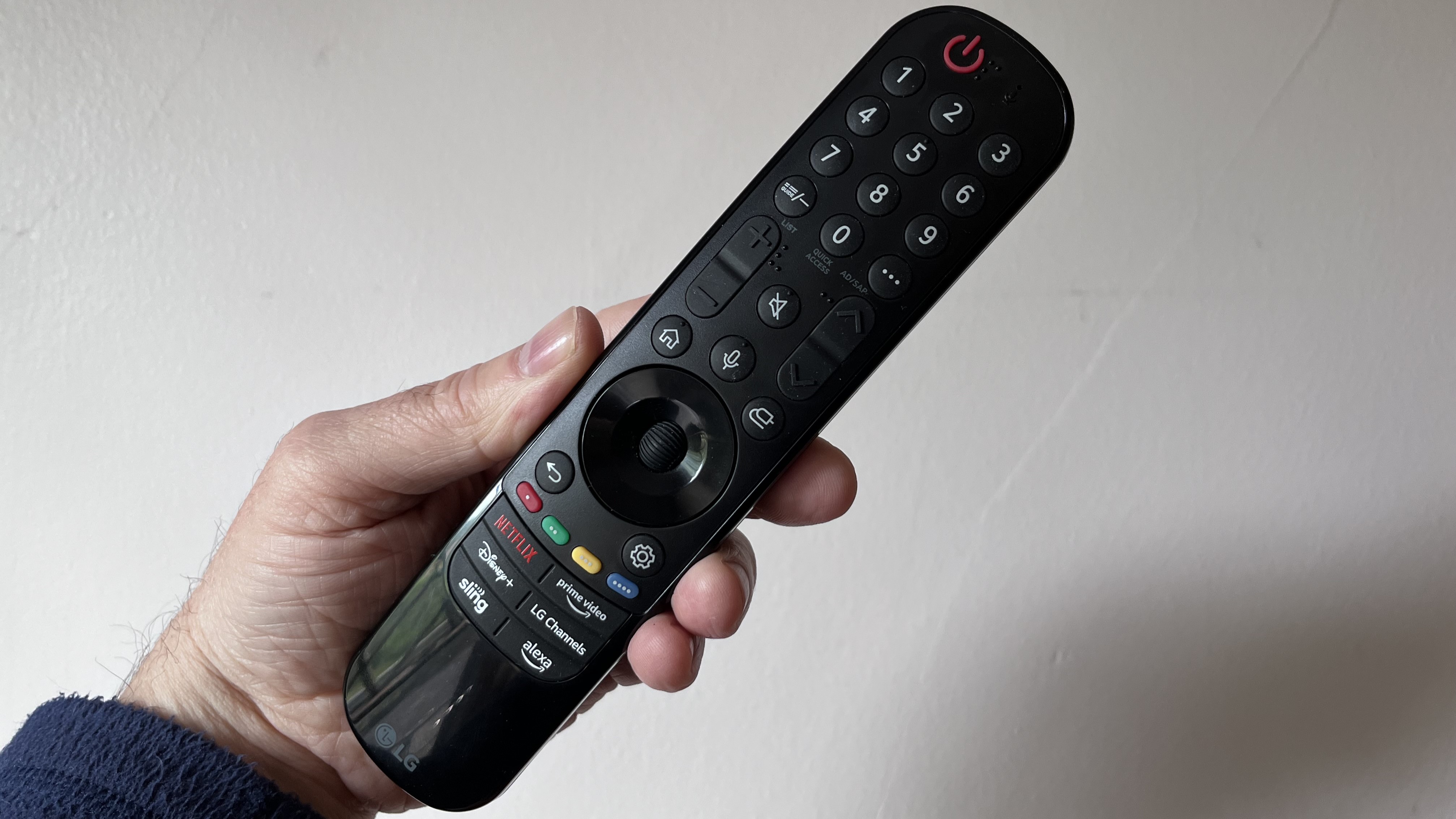
Specifications
Reasons to buy
Reasons to avoid
✅ You watch a lot of movies: The C4 delivers excellent picture quality, and its new Dolby Vision Filmmaker Mode takes performance a step further.
✅ You're a gamer: 4K 120Hz and Dolby Vision gaming support on all four HDMI ports, along with many other gaming features, make this a gaming dream.
❌ You want the sound quality to match the picture: The C4's average built-in sound quality doesn't match up to the scale of its pictures.
❌ You want the cheapest gaming TV: Mini-LED TVs from Hisense and TCL have many of the same features as the C4, and LG's B4 OLED is a cheaper OLED.
The LG C4 provides a big-screen OLED experience at a more affordable price than premium OLED TVs such as the Samsung S95D. It has superb picture quality, excellent gaming features and performance, plus an attractive, slim design.
Picture quality is one of the highlights of the C4. We were impressed by its excellent contrast and detail during our testing, as well as bold and vibrant colors. It also has improved brightness over its predecessor, the LG C3, leading to stronger, bolder HDR highlights that really pop.
Gaming is one of the C4's strong points. Four HDMI 2.1 slots, fully kitted with 144Hz refresh rate, variable refresh rate (HDMI forum, AMD FeeeSync and Nvidia G-Sync), auto low latency mode, and Dolby Vision gaming all feature on the LG C4. Plus, it comes with LG's useful Game Optimizer, which selects the most relevant settings for your gaming session.
The C4 uses the latest version of LG's own smart TV platform, webOS 24, which has had its home menu trimmed down and neatened to an easy-to-navigate layout. It also has accessibility features such as an AI chatbot to aid with tech issues users may encounter, as well as great support for a huge range of streaming services
At a 77-inch size, picture quality is crucial and this is where the C4's OLED panel thrives. While there are cheaper options available, the C4 delivers in all areas at a fair price for this size that means it's the best 75-inch TV you can get.
Find the best deals on LG products with our LG coupon codes.
The best budget 75-inch TV in the US
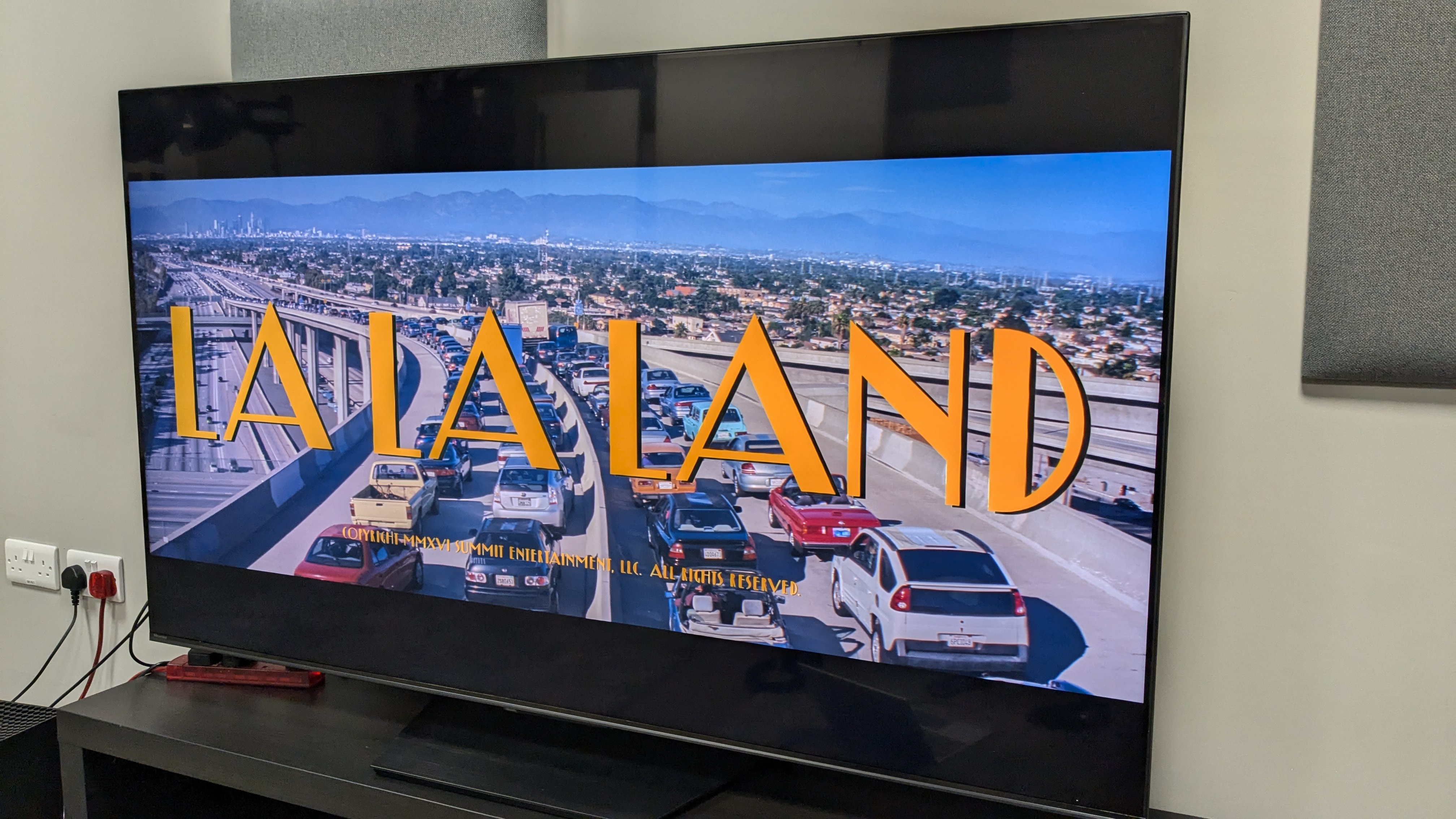
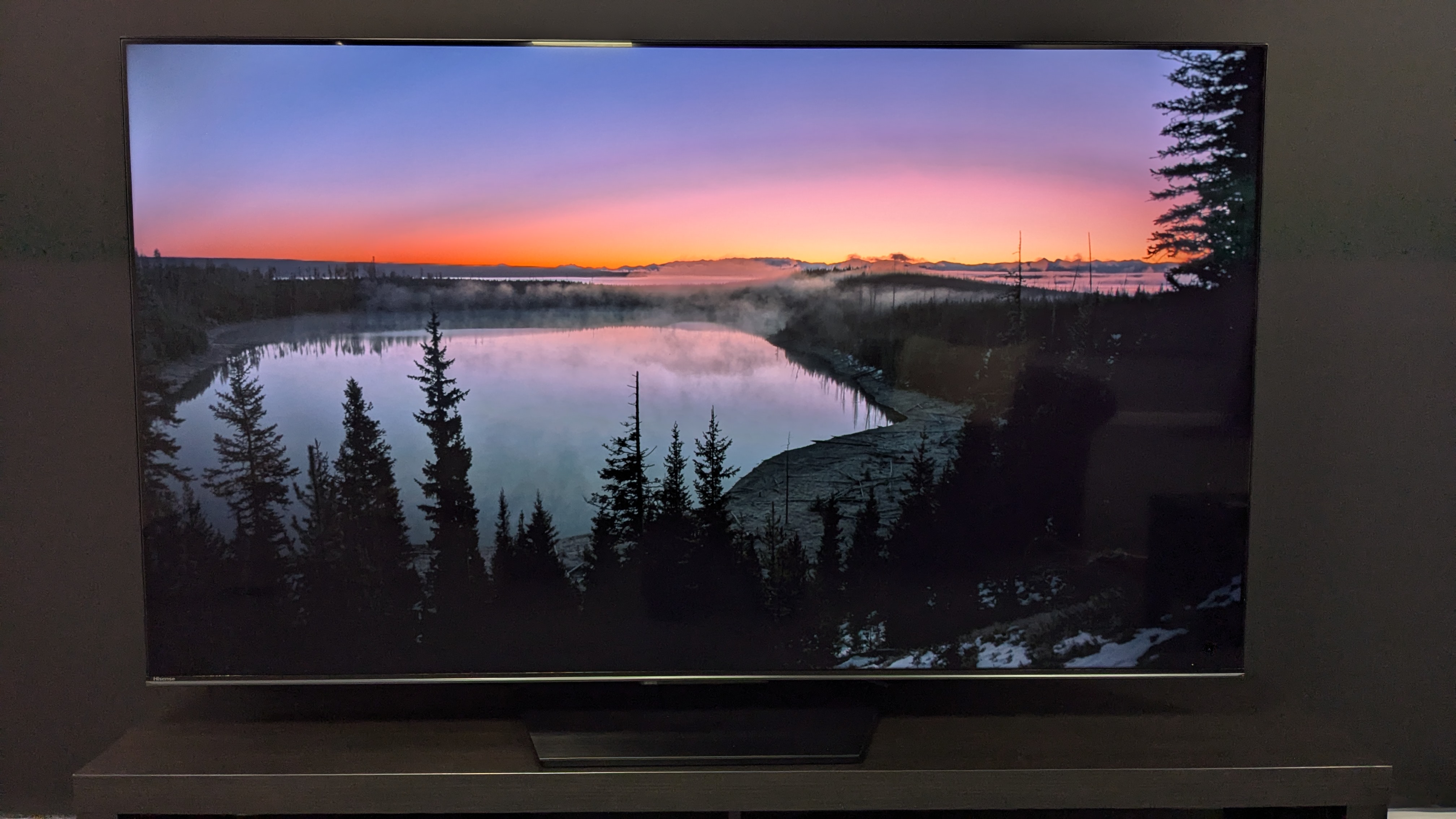
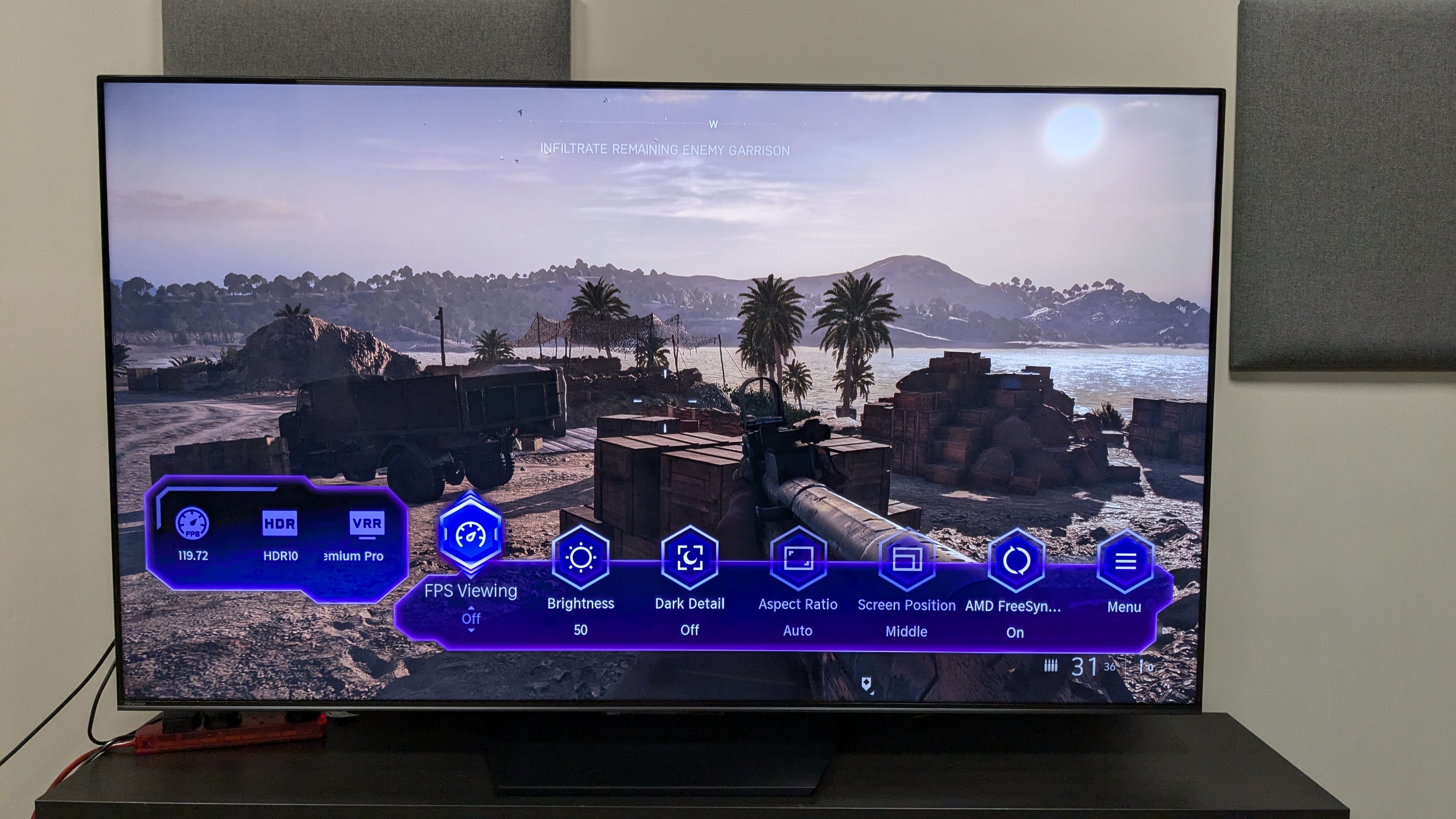
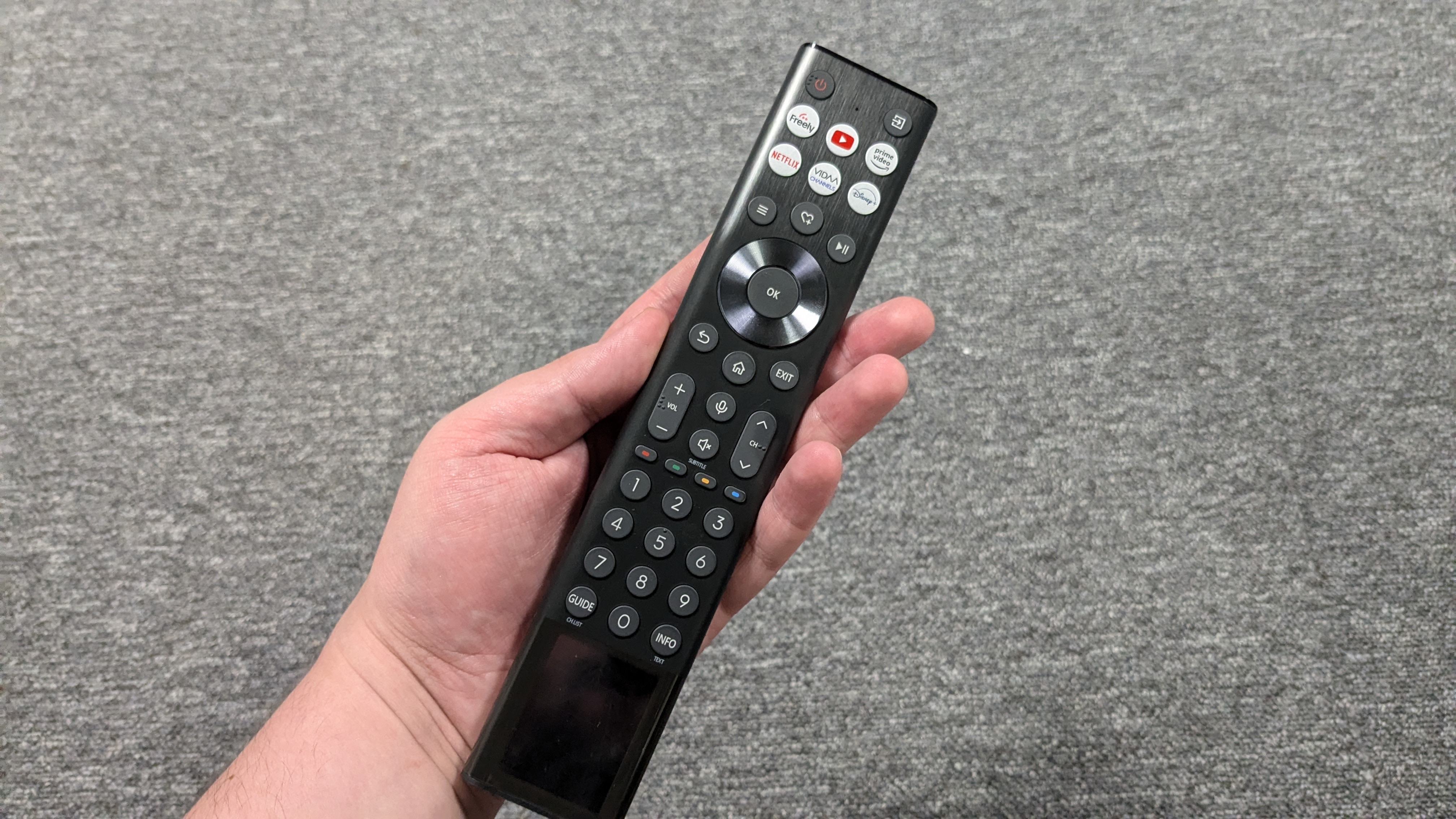
Specifications
Reasons to buy
Reasons to avoid
✅ You want great pictures without breaking the bank: The U7N has an impressive picture with great contrast, easily outperforming its budget price.
✅ You need a gaming TV on a budget: Stacked with features including Dolby Vision gaming and 4K 120Hz support, the U7N covers nearly all the gaming bases.
❌ You don't want to tweak any settings: We found that some experimenting with picture settings was required to get the best out of the U7N.
❌ You want excellent sound: The U7N's sound may suit some, but we found it to be a little lacking. This TV is best paired with a soundbar.
If you want the most out of your money in a big-screen size, the U7N provides nearly all you need, including a colorful and balanced picture with plenty of detail and a near-full suite of gaming features plus great gaming performance.
The U7N proves that the best mini-LED TVs don't have to cost a crazy amount. It delivers impressive textures and details, bold and vivid color and solid contrast – especially if you feed it 4K sources. While it suffers from some backlight blooming (especially when viewed off-center) and its picture requires some setup to get the best from it, the U7N's picture for the price is hard to argue against.
Big-screen gaming is also well-covered by the U7N, with a list of features that includes Dolby Vision gaming, VRR (HDMI, AMD FreeSync and Nvidia GSync all included) and up to a 4K 144Hz refresh rate. It also delivers brilliant picture quality and performance for your games.
While the U7N is not without compromises – it has average built-in audio and some playing around with the picture settings is required - this Hisense provides almost unbeatable value, letting more people experience mini-LED picture quality without paying excessively for it.
Read our full Hisense U7N review
The best budget 75-inch TV in the UK
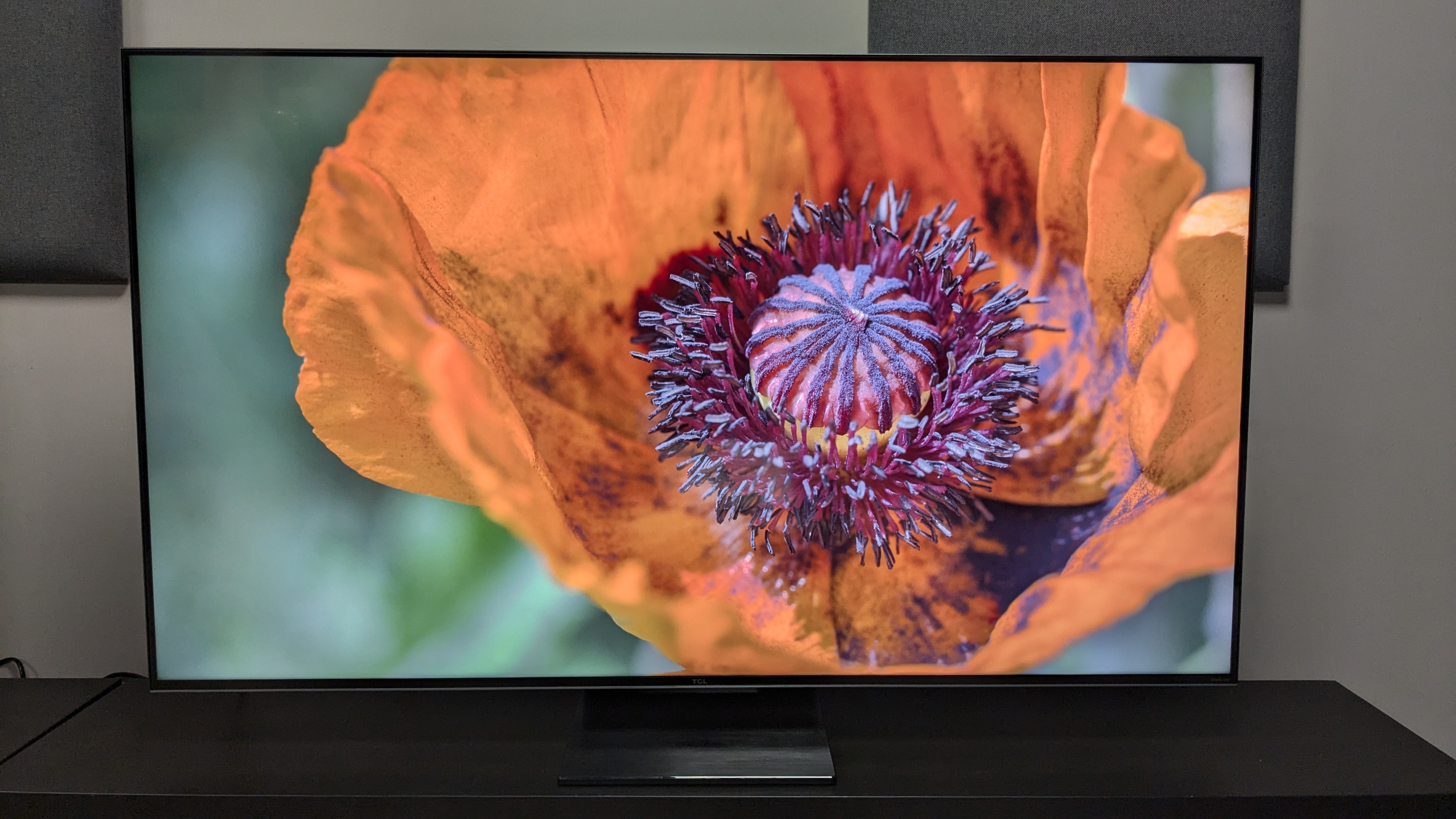
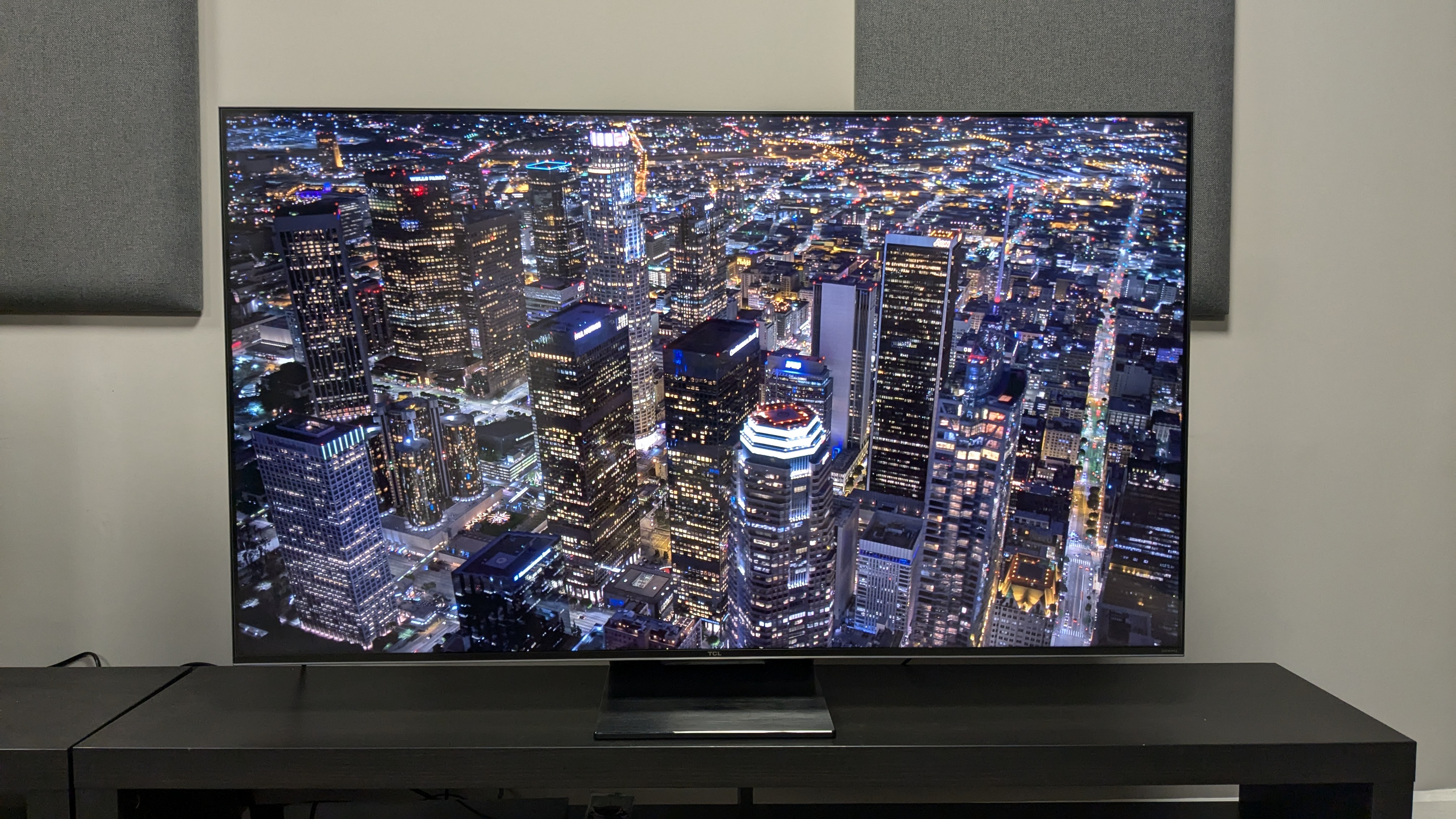
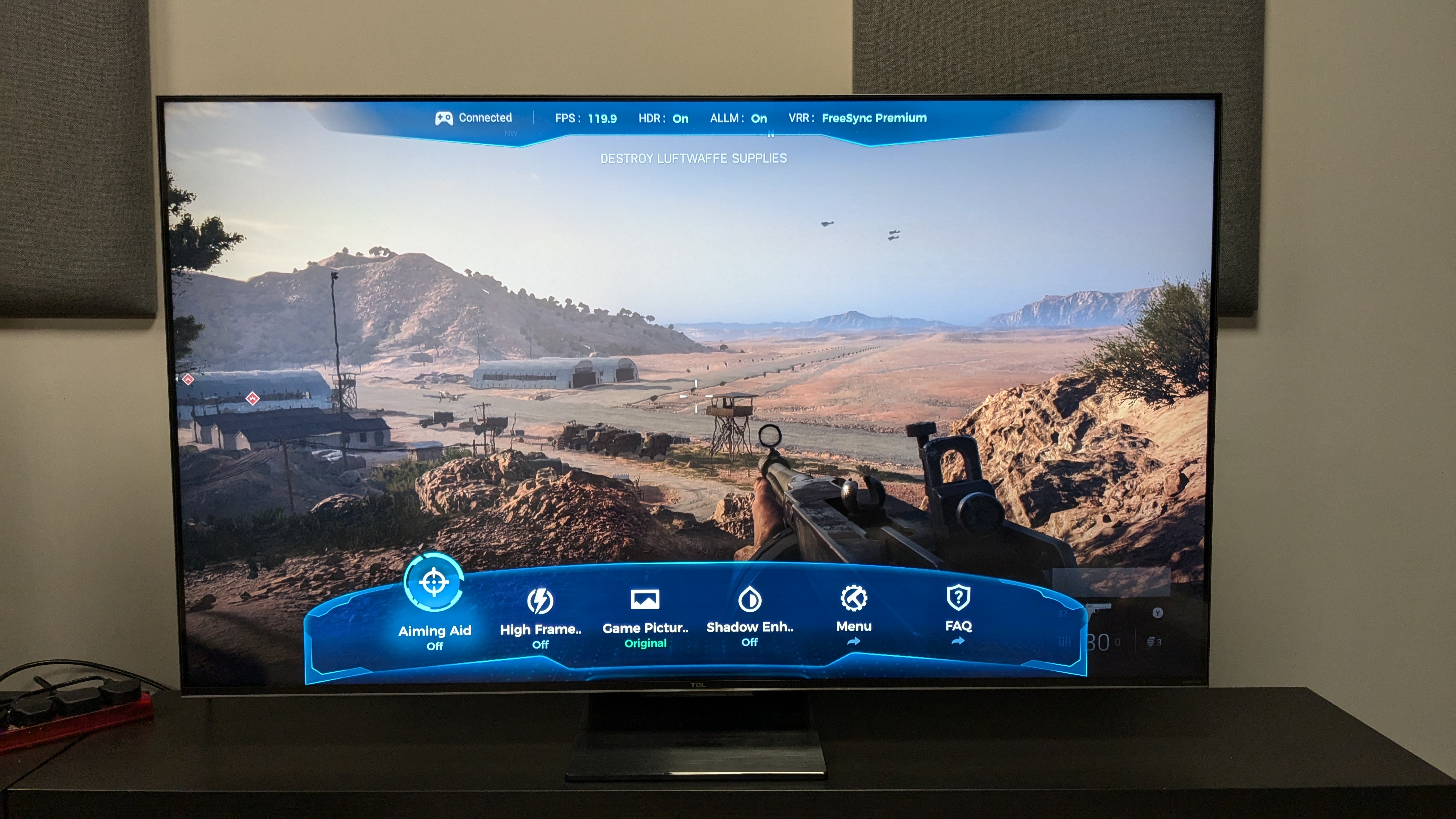
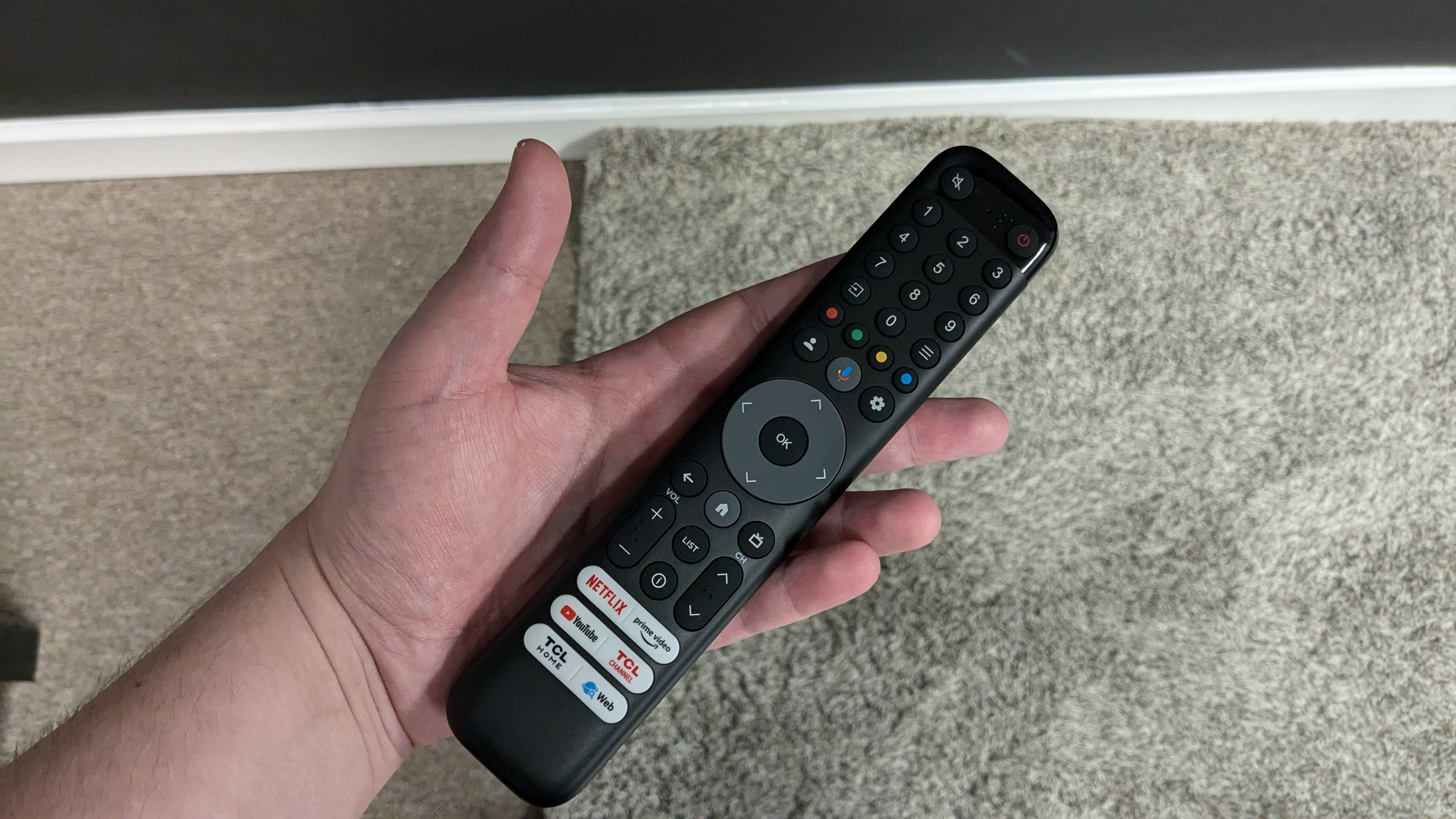
Specifications
Reasons to buy
Reasons to avoid
✅ You want a brilliant picture for the price: Despite its cheap price, the C805 delivers excellent picture quality fuelled by superb detail and contrast.
✅ You want a budget big screen for gaming: The C805 has superb features for a cheap TV, including 4K 120Hz, VRR, Dolby Vision gaming and ALLM.
❌ You watch a lot of sport: The C805's motion handling is average at best even after tweaking, so it doesn't lend itself well to sports viewing.
❌ You need great built-in sound: The C805's sound is punchy enough, but limited by a restricted soundstage and spatial placement.
The TCL C805 is a superb-value TV that delivers vibrant, detailed pictures (thanks to its mini-LED backlight, a rarity at this price point), an excellent list of gaming features and a lightweight, but solid design, all for a very affordable price.
In our C805 review, we were very impressed by its refined details and textures, bold and vibrant colors, solid black levels and punchy contrast. Crucially, its mini-LED backlight provides enhanced local dimming and black uniformity (an ability to display dark tones evenly across the screen), which is ideal for a larger, 75-inch TV. Although its motion handling is inconsistent, struggling with sports and fast-moving images, we noted that "at this price range, it's tough to be disappointed in the C805's picture", especially given the low price.
The C805 also comes equipped with many of the gaming features we expect from more premium sets including 4K 120Hz, Dolby Vision gaming, VRR (AMD FreeSync Premium Pro included) and ALLM, making it an excellent choice for big-screen gaming on a budget.
While the C805 does lack the quality built-in sound of more premium TVs and is bested by those models in most areas, if you're looking for a 75-inch TV with great picture quality and gaming features for an affordable price, you can't do much better than the C805.
Read our full TCL C805 review
The best mid-range 75-inch TV
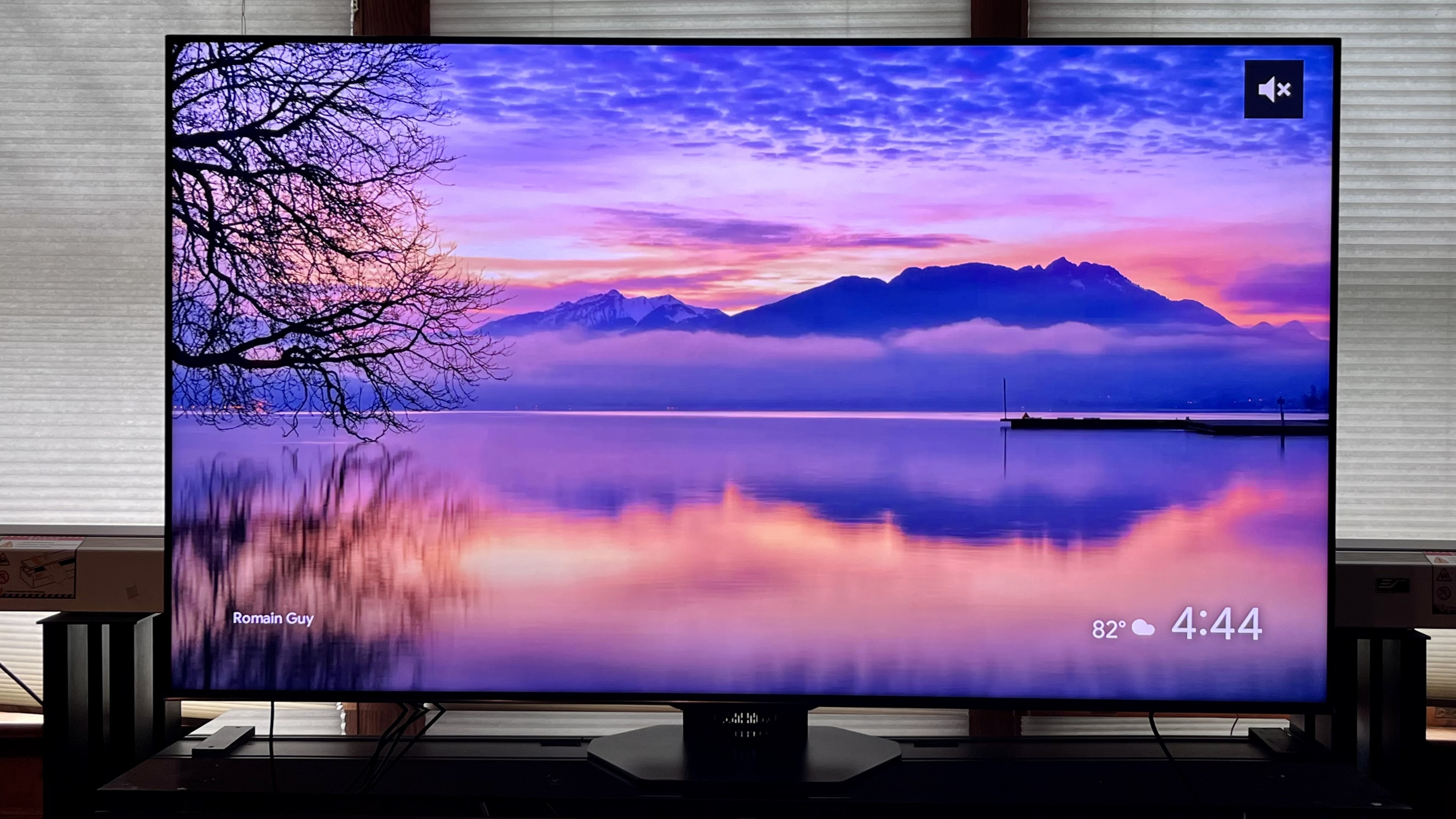
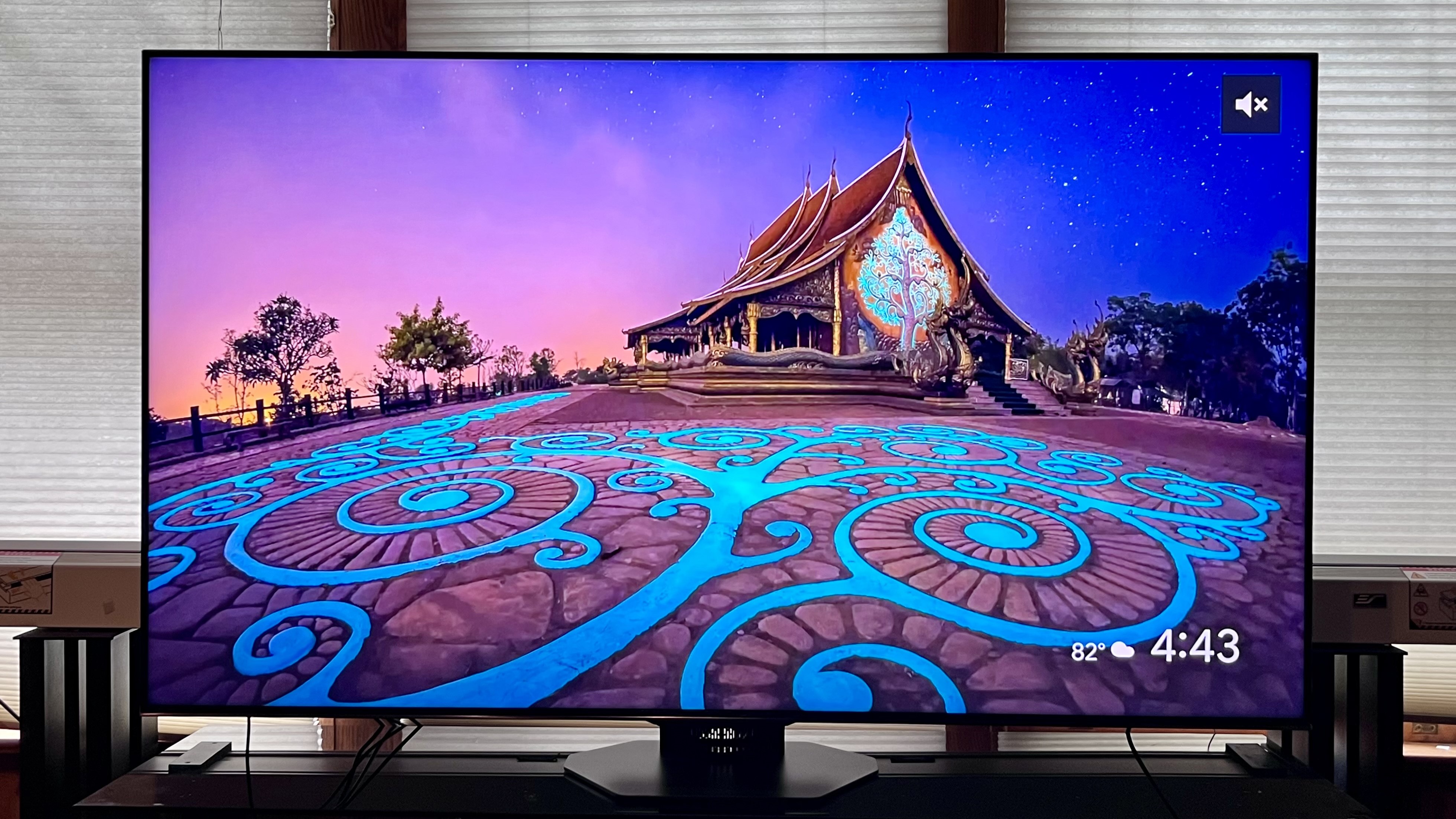
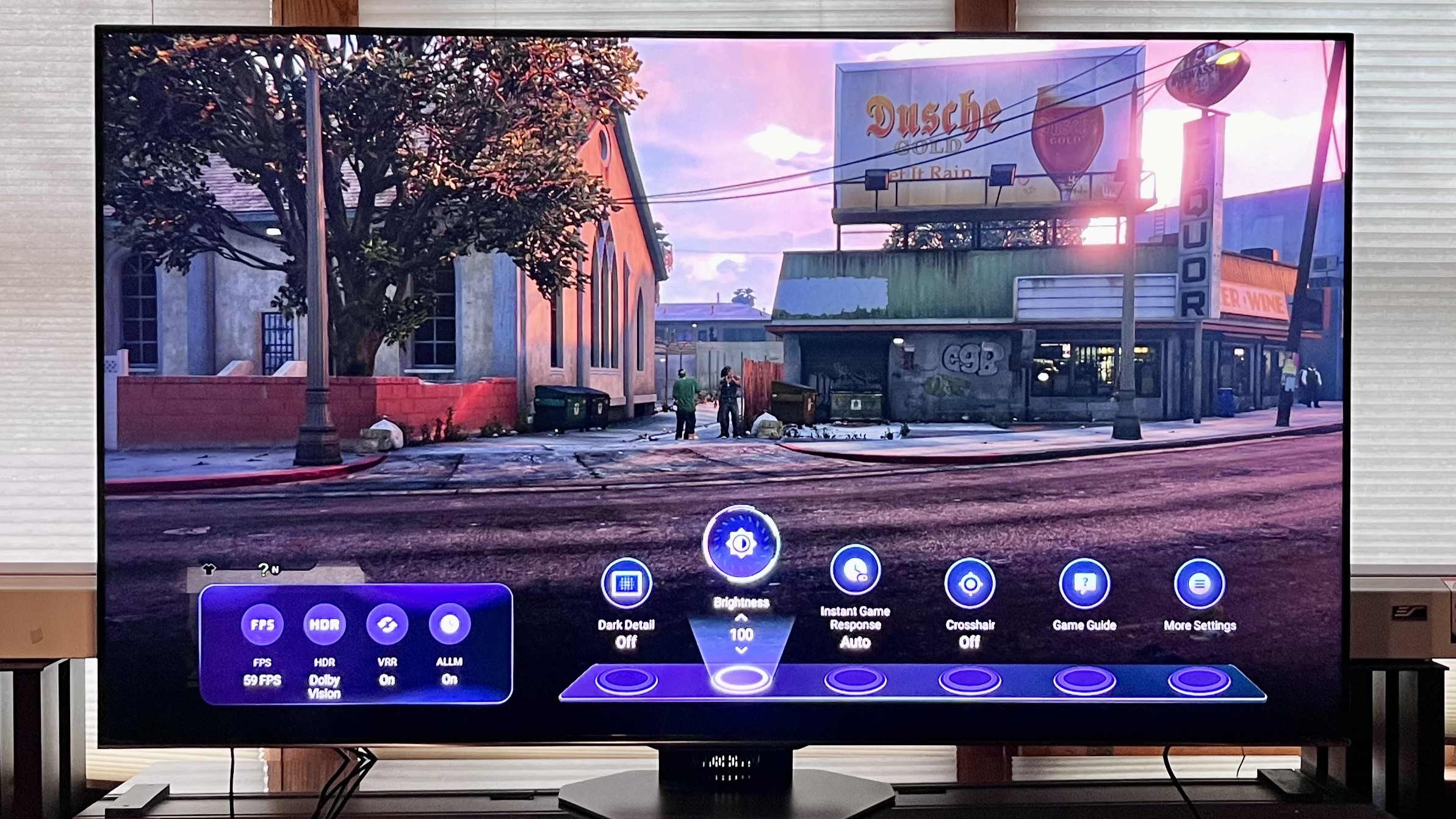
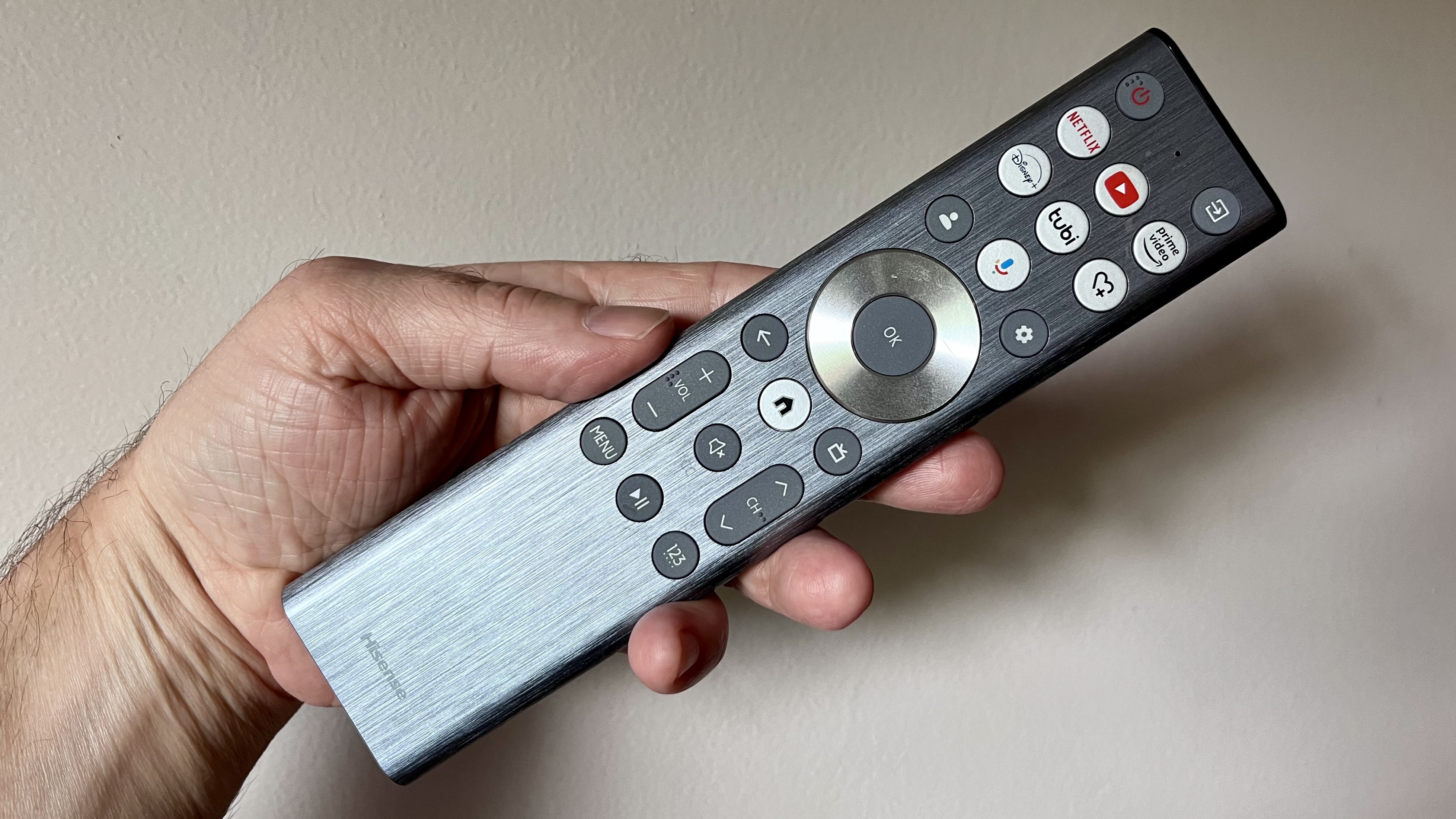
Specifications
Reasons to buy
Reasons to avoid
✅ You love movies: With excellent brightness and support for Dolby Vision and HDR10+ formats, movies in 4K look amazing.
✅ You want a mini-LED TV that's affordable: It stands up well against mini-LEDs from premium brands, just more budget-friendly.
❌ You like watching in big groups: Picture quality suffers if someone isn't sat in the center of the TV, not great for sports nights.
❌ You don't want to edit settings: Filmmaker Mode needs adjustments when watching movies with Dolby Vision HDR.
The Hisense 75U8N is our top pick if you're looking for a mid-range 75-inch TV that still performs exceptionally well, especially when it comes to TV shows and movies.
Hisense has significantly boosted the 75U8N's brightness levels and introduced other picture quality refinements compared to last year's U8K series. In our review, we called this Hisense TV "astonishingly bright", which meant pictures looked phenomenally punchy with a lot of detail and depth. When it comes to HDR support, there's Dolby Vision (IQ), HDR10+, HDR10, and HLG formats here. This makes the 75-inch version a top choice for movies, but we also enjoyed watching sports during our testing. Just bear in mind that the TV’s off-axis uniformity wasn't great, meaning viewers at off-center seats experience faded color and contrast.
There are two HDMI 2.1 ports with 4K 144Hz and 4K Dolby Vision gaming support here. Plus a Game Bar menu that lets you change the picture settings. These features don't make it one of the best gaming TVs (we'd want to see four HDMI ports), but a solid choice for anyone who wants a huge TV for TV shows and movies that will also do for gaming on the side. If you're in the US, you'll get the Google TV smart TV platform, which we rate as one of the better options for streaming and browsing content. But you'll get Hisense’s own VIDAA platform in the UK, Australia, and elsewhere.
The U8N isn't exactly cheap, but for a solid mid-range choice it's much more affordable than many of its mini-LED rivals at this 75-inch size.
Read the full Hisense U8N review
The best premium 75-inch TV
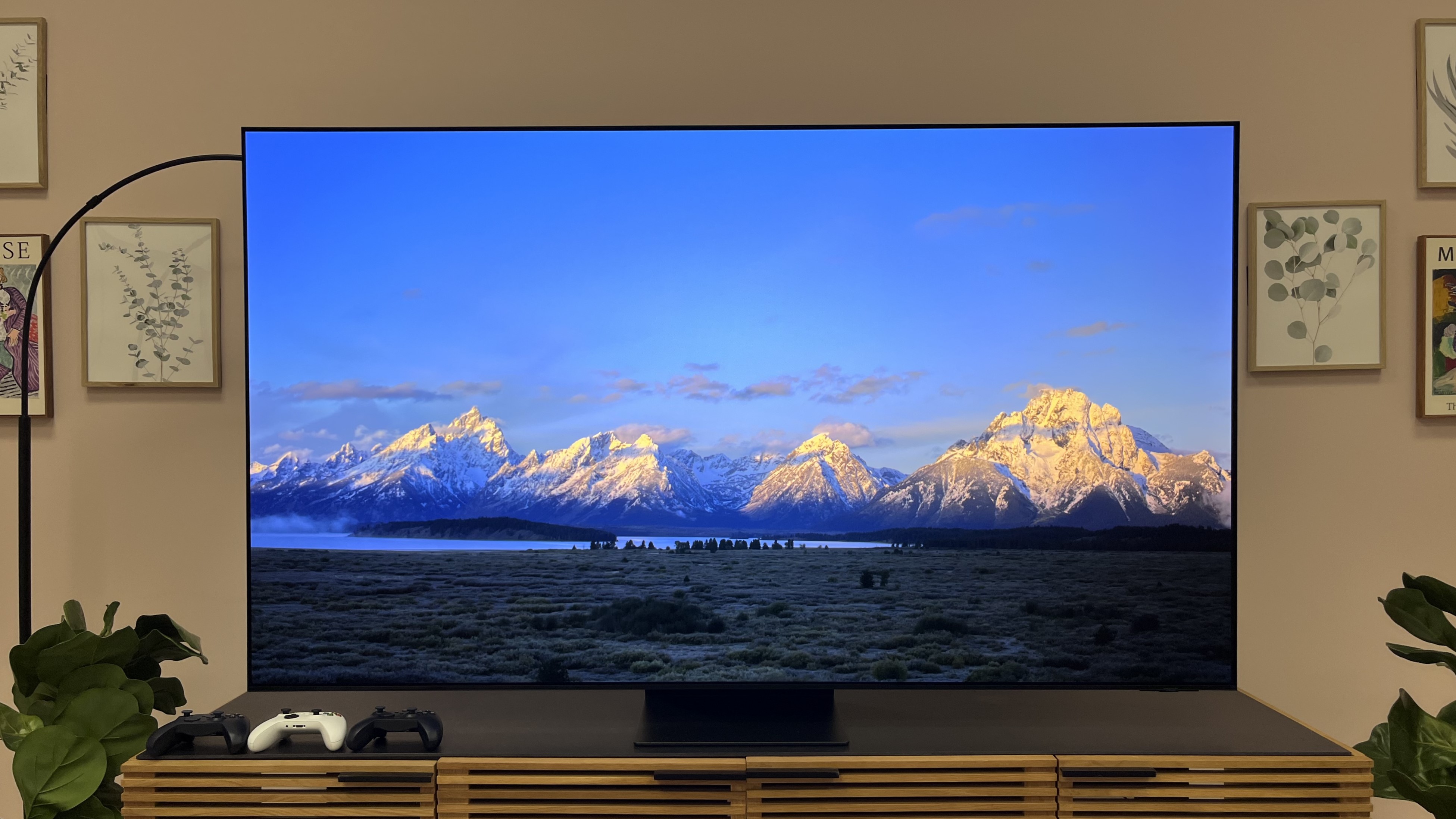
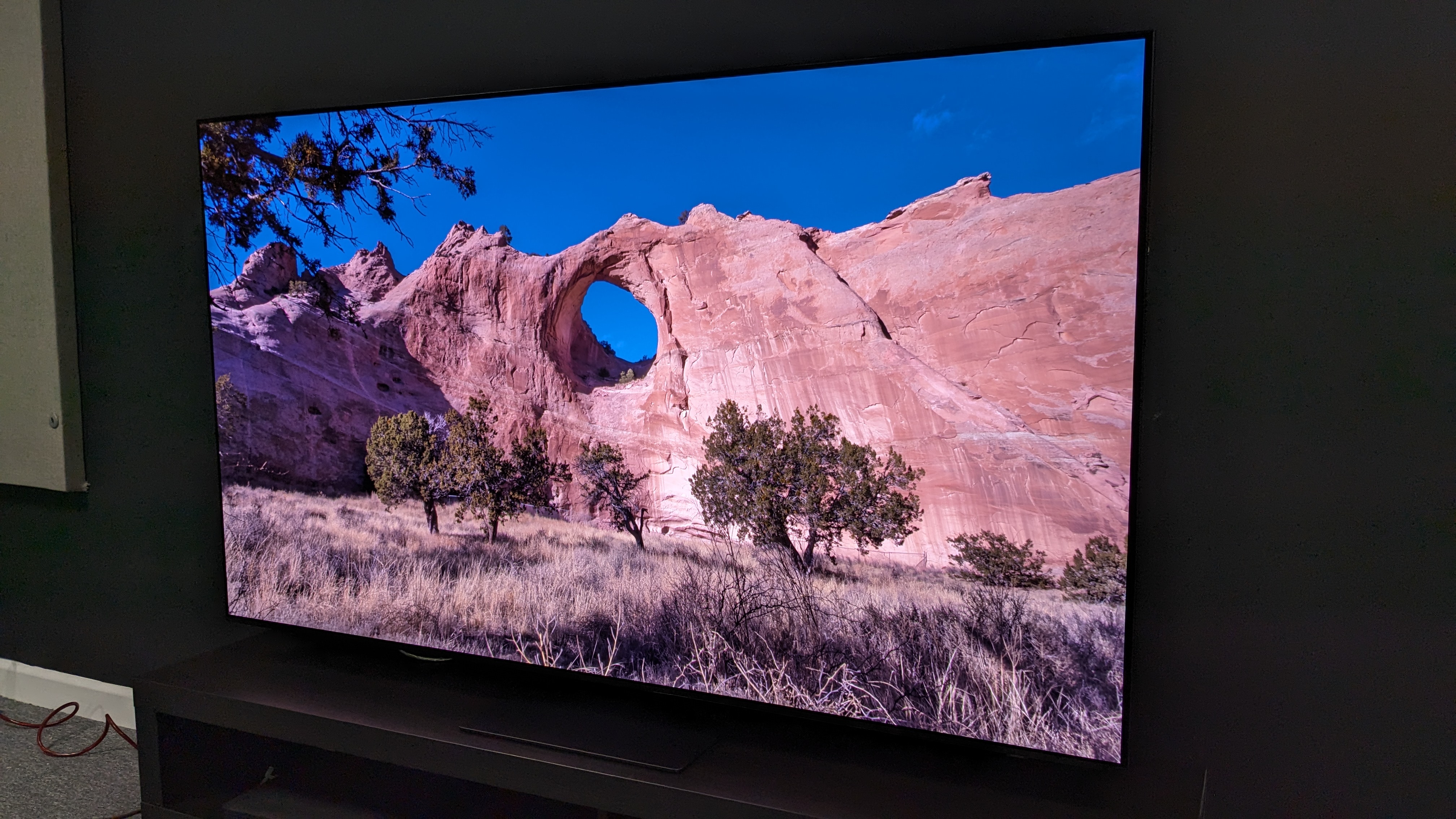
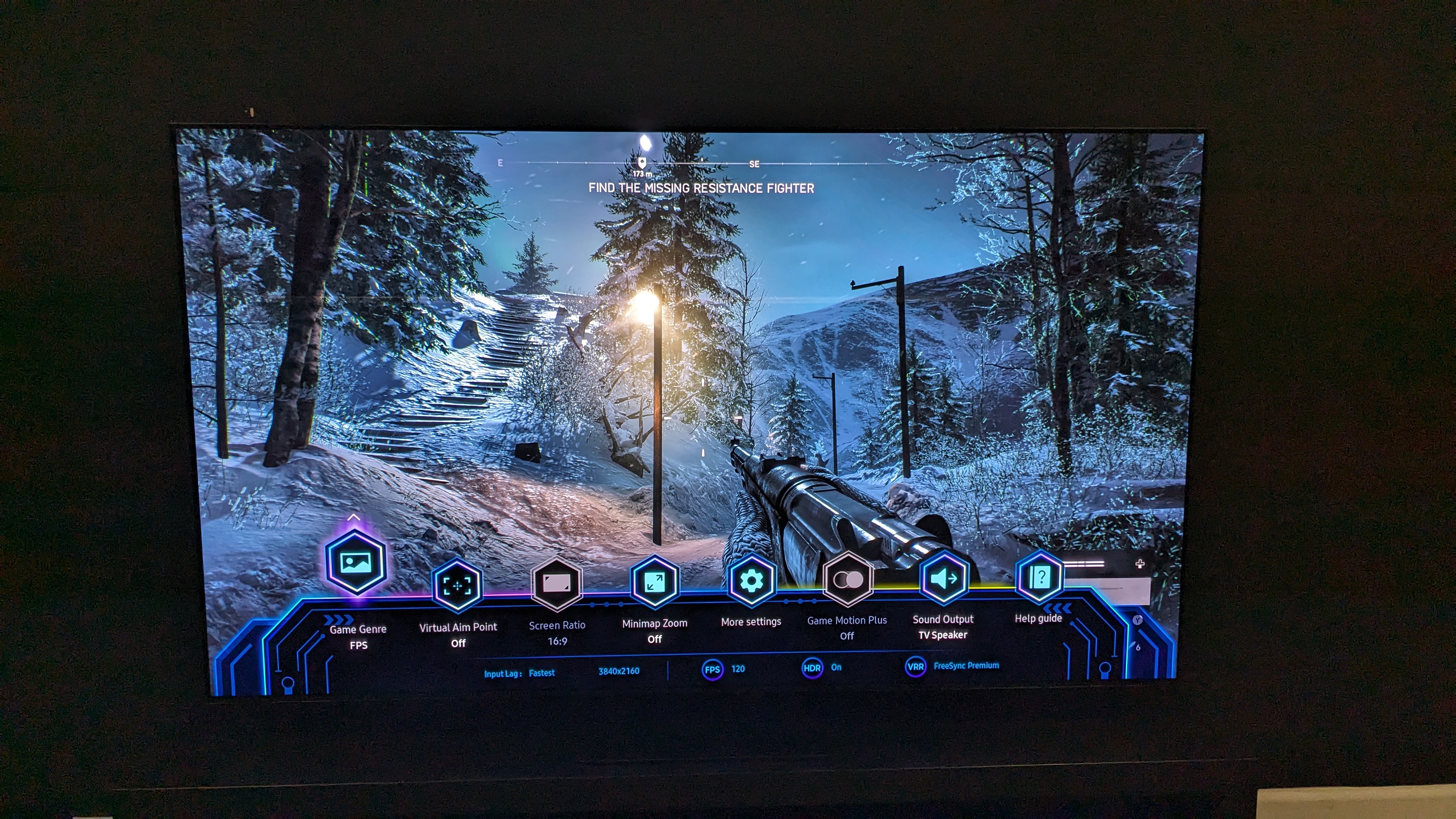
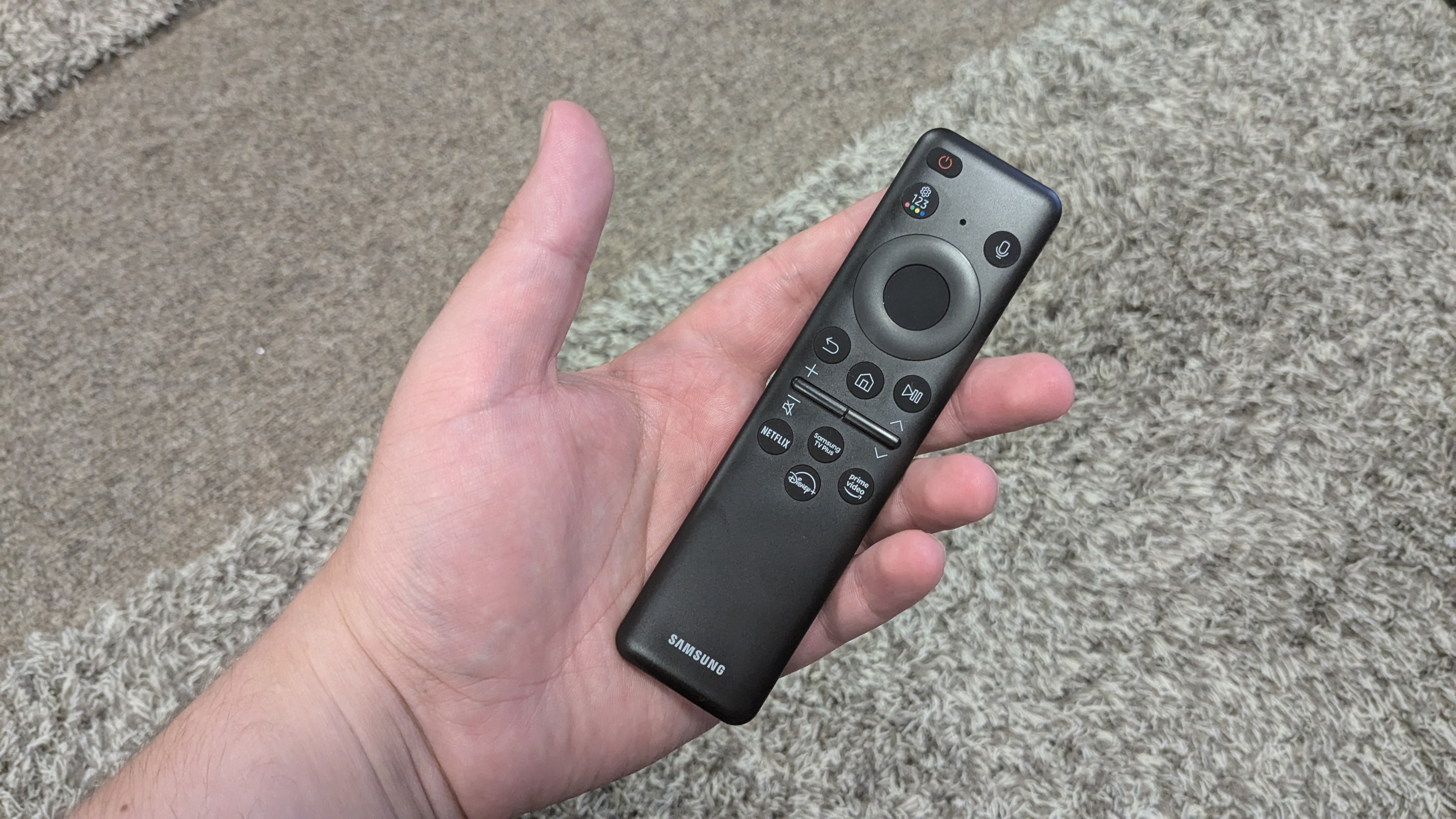
Specifications
Reasons to buy
Reasons to avoid
✅ You want a spectacular picture: Lifelike, accurate detail, stunning contrast, and dynamic color are just a few things that make the S95D's picture so good.
✅ You value both design and performance: With its floating stand and razor-thin profile and bezel, the S95D is one of the most stunning-looking TVs you can buy.
❌ You want an accurate Filmmaker Mode: Although it delivers extraordinary pictures, we noted black crush in darker scenes with the S95D in Filmmaker Mode.
❌ You are on a budget: A TV with this many features that delivers this level of quality comes at a higher price than other big-screen sets.
Similar to its predecessor, the Samsung S95C, the new Samsung S95D, takes OLED picture quality to the next level by combining an OLED display panel with QLED technology. But the S95D manages to be even brighter than the S95C, which previously reigned as the OLED TV brightness champ.
Samsung’s AI enhancements for the S95D bring unsurpassed detail levels to both 4K and lower-resolution pictures alike. Images are characterized by strong contrast and bold colors, and plenty of detail can be seen in dark, shadowy images. A new feature that arrives with the S95D is an anti-reflection screen that makes pictures look great even in bright room lighting, eliminating a long-standing issue with OLED TVs.
It’s not just movies that look great on the S95D, but Samsung also made it a powerhouse for gaming. It features 144Hz refresh rate, ALLM, VRR and AMD FreeSync Premium Pro support on all four HDMI 2.1 ports, and also has Samsung Gaming Hub for cloud-based gaming from services including Xbox, Nvidia GeForce Now, Luna, Utomik, and more.
Design-wise, the S95D is a beautiful-looking TV with a super-slim profile and bezel and a “floating” stand that makes the TV look airborne even when not wall-mounted. And if you do choose to wall-mount it, an external One Connect Box makes that type of installation elegant and easy.
Read our full Samsung S95D review
The best 75-inch TV for sound
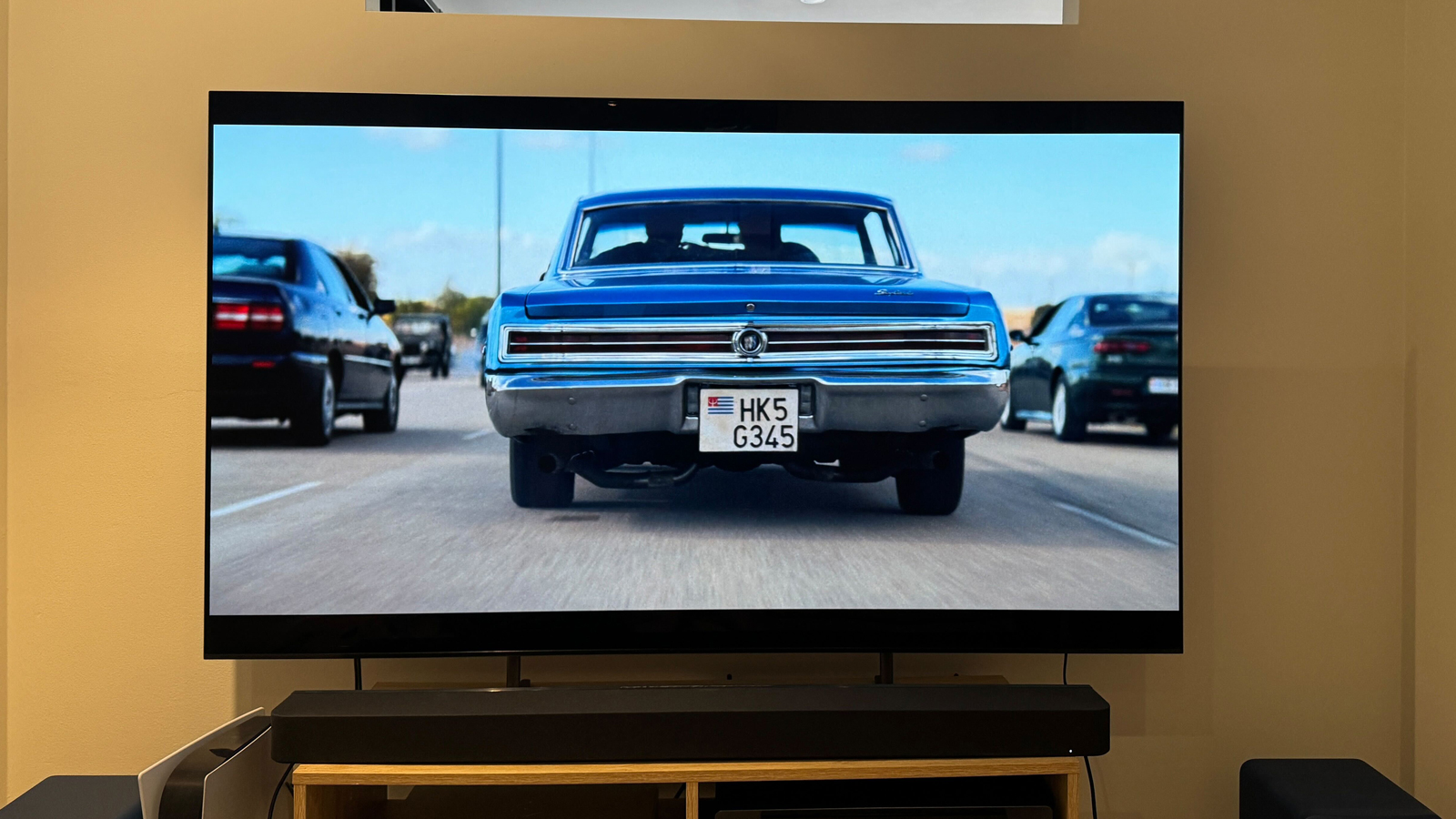
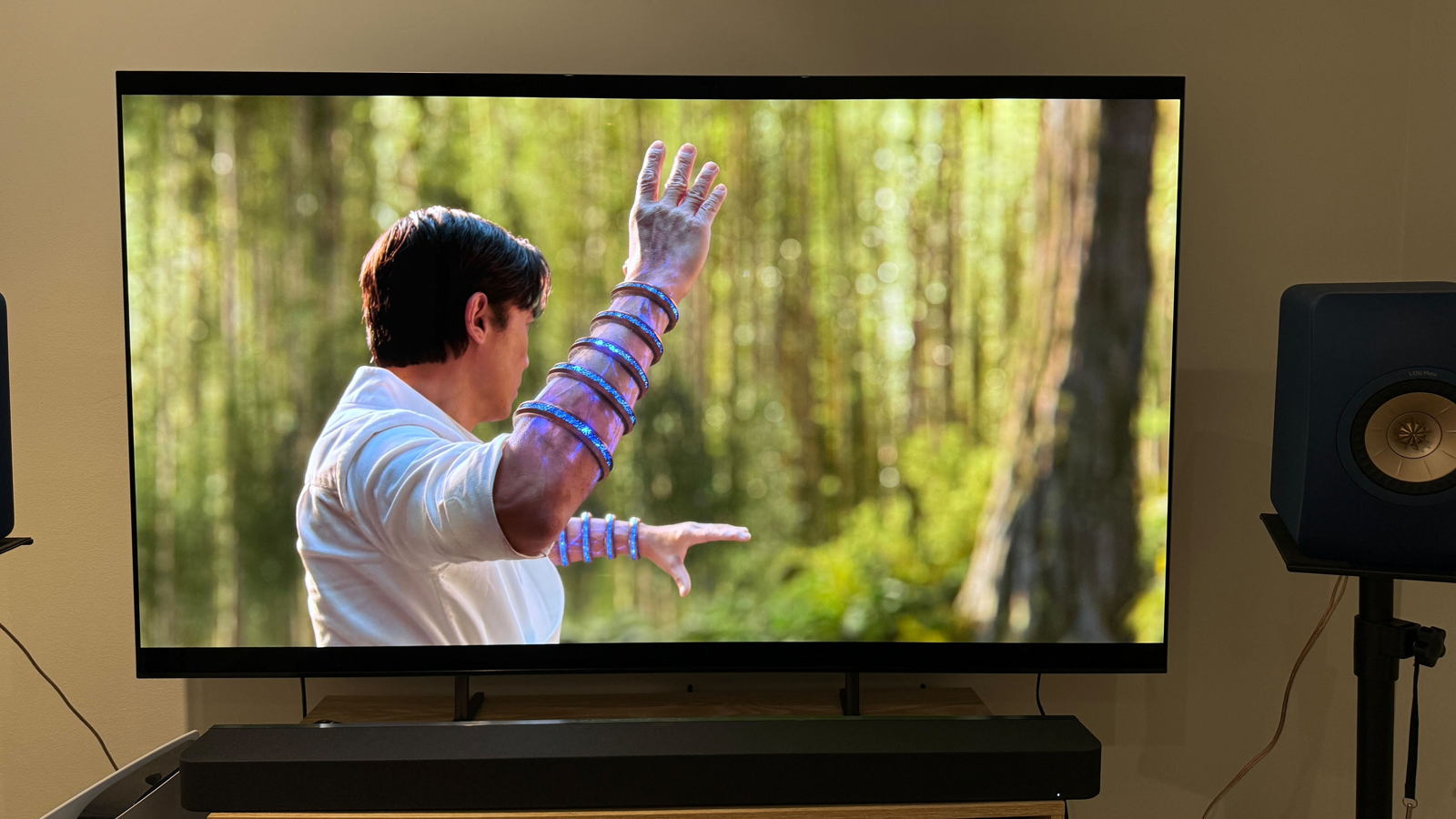
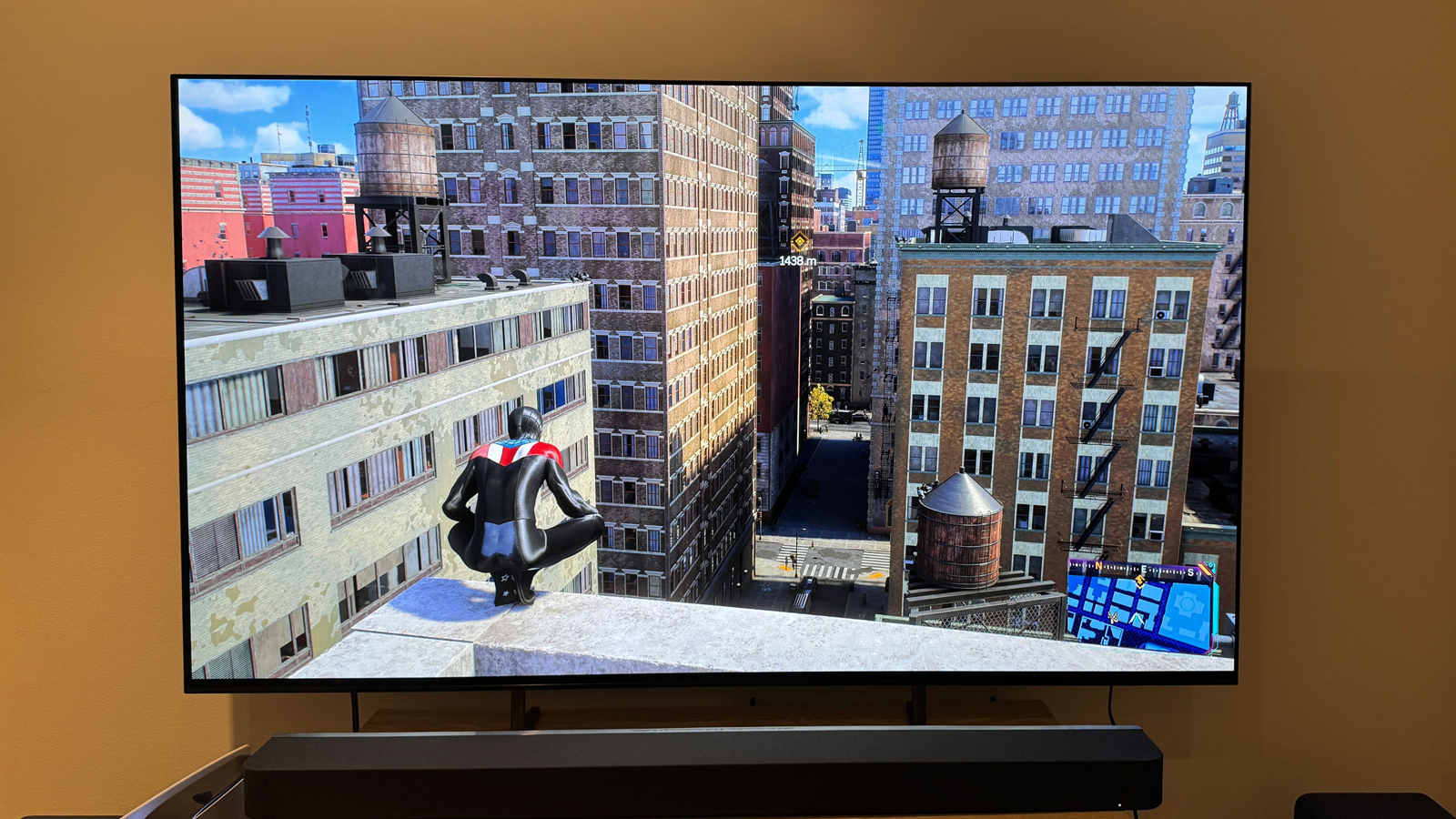
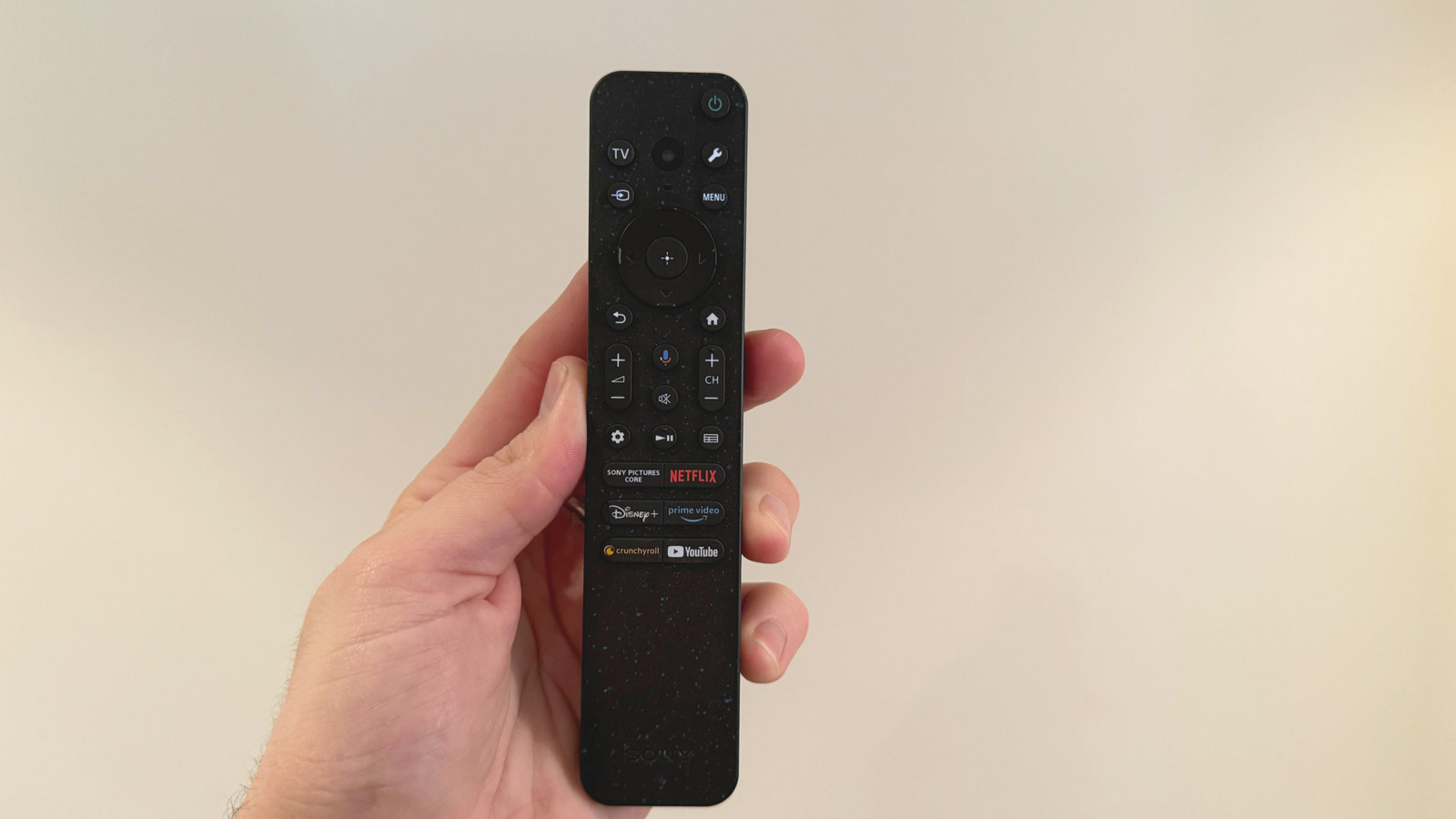
Specifications
Reasons to buy
Reasons to avoid
✅ You want excellent built-in sound: The Sony Bravia 8 uses Acoustic Surface Audio+ to deliver a direct, immersive and balanced built-in sound.
✅ You want a detailed, natural picture: The Bravia 8's greatest strength in its picture quality is the level of detail it produces, giving textures a natural and realistic look.
❌ You want the best gaming TV: While it has a good number of gaming features, the Bravia 8's 12.8ms input lag time can be beaten and it only has two HDMI 2.1 ports.
❌ You want the brightest OLED TV: Other OLED TVs including the Samsung S95D and LG C4 (both on this list) are brighter than the Bravia 8.
The Sony Bravia 8 enters a very competitive mid-range OLED TV market – facing competition from the likes of the LG C4, Panasonic Z85A, and more – and bests them all in one area: sound. It delivers in other areas, but it's audio where the Bravia 8 has the upper hand, which is important in a large 77-inch screen size.
The Bravia 8 does something not many TVs can seem to do nowadays by delivering superb-quality built-in sound. It uses Acoustic Surface Audio+ tech to deliver a direct sound right from the screen itself with real power and clarity. During testing we were impressed with the Bravia 8's built-in audio, describing it as "remarkable", particularly with its accurate placement of effects. While we found bass still a bit lacking, the Bravia 8's built-in sound is still "more engaging than most other TV sound systems".
Picture quality on the Bravia 8 is also excellent, with natural but vibrant colors and increased HDR brightness from its predecessor, the Sony A80L, to give pictures a more dynamic look. Details and contrast are also very good, particularly with shadow detail. The Bravia 8 does suffer from reflections in brighter rooms, so it fares best in darker viewing conditions – all of its OLED rivals are brighter, giving them more punch and a better chance to beat reflections. But overall, the Bravia 8 is a top model in a very competitive mid-range OLED market.
The Bravia 8 also has a good list of gaming features including 4K, 120Hz, VRR and Dolby Vision gaming support and adjustable feet for placement of a soundbar underneath the TV. While it isn't the best in terms of value, pricier than its rivals, if you want excellent built-in sound in a big screen size, the Bravia 8 is top of its class.
Read our full Sony Bravia 8 review
The best 75-inch TV for sports
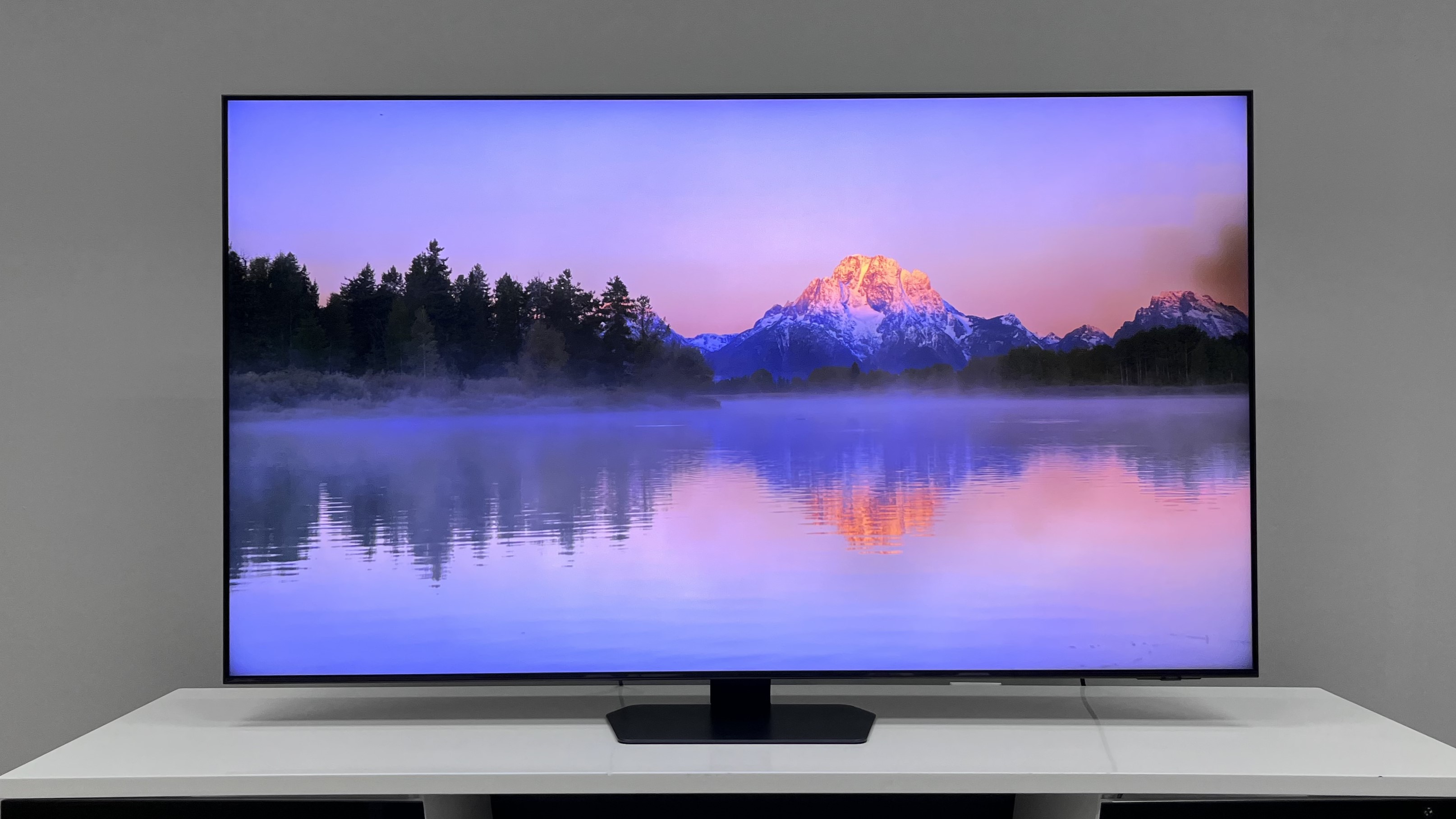
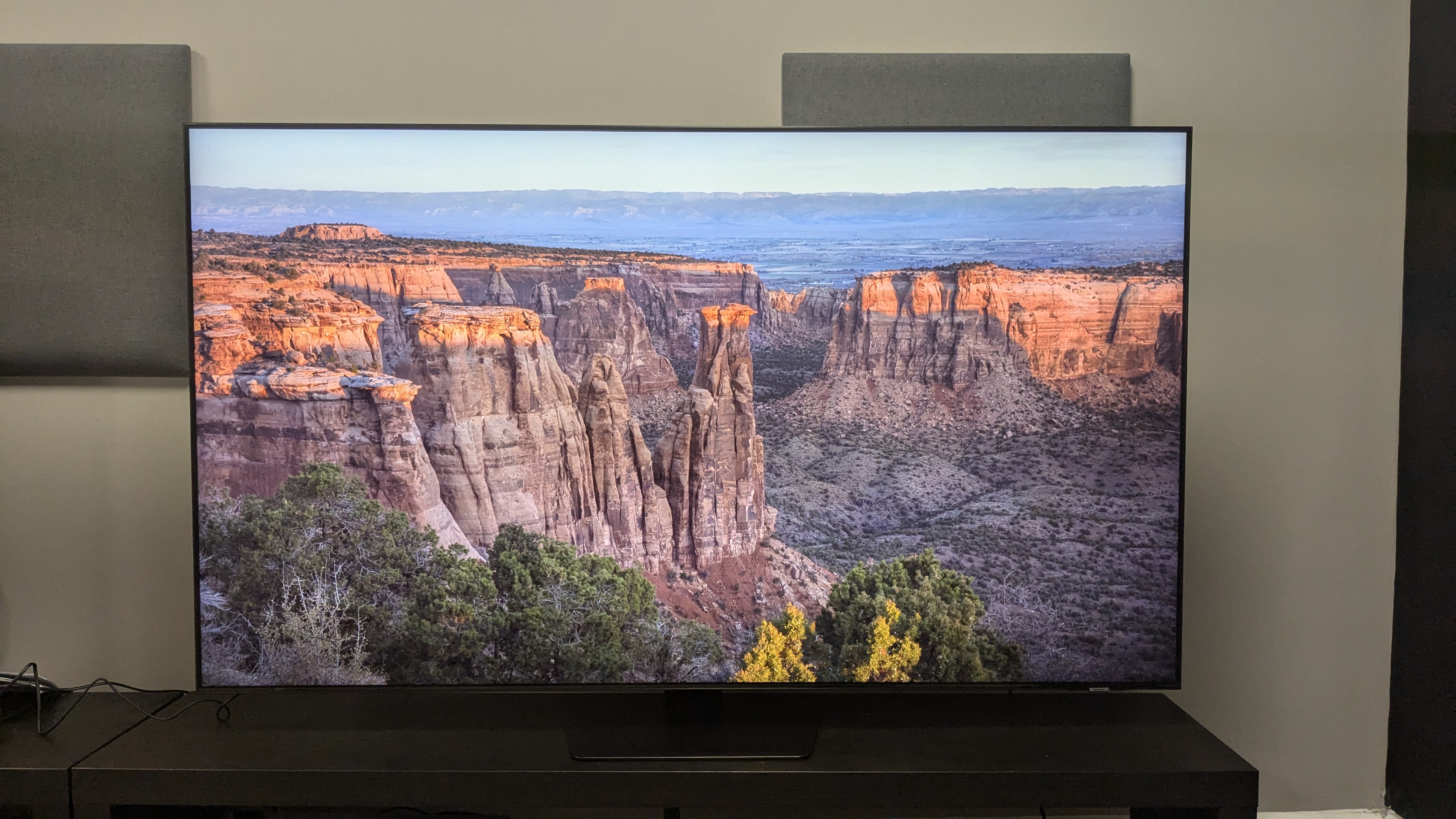
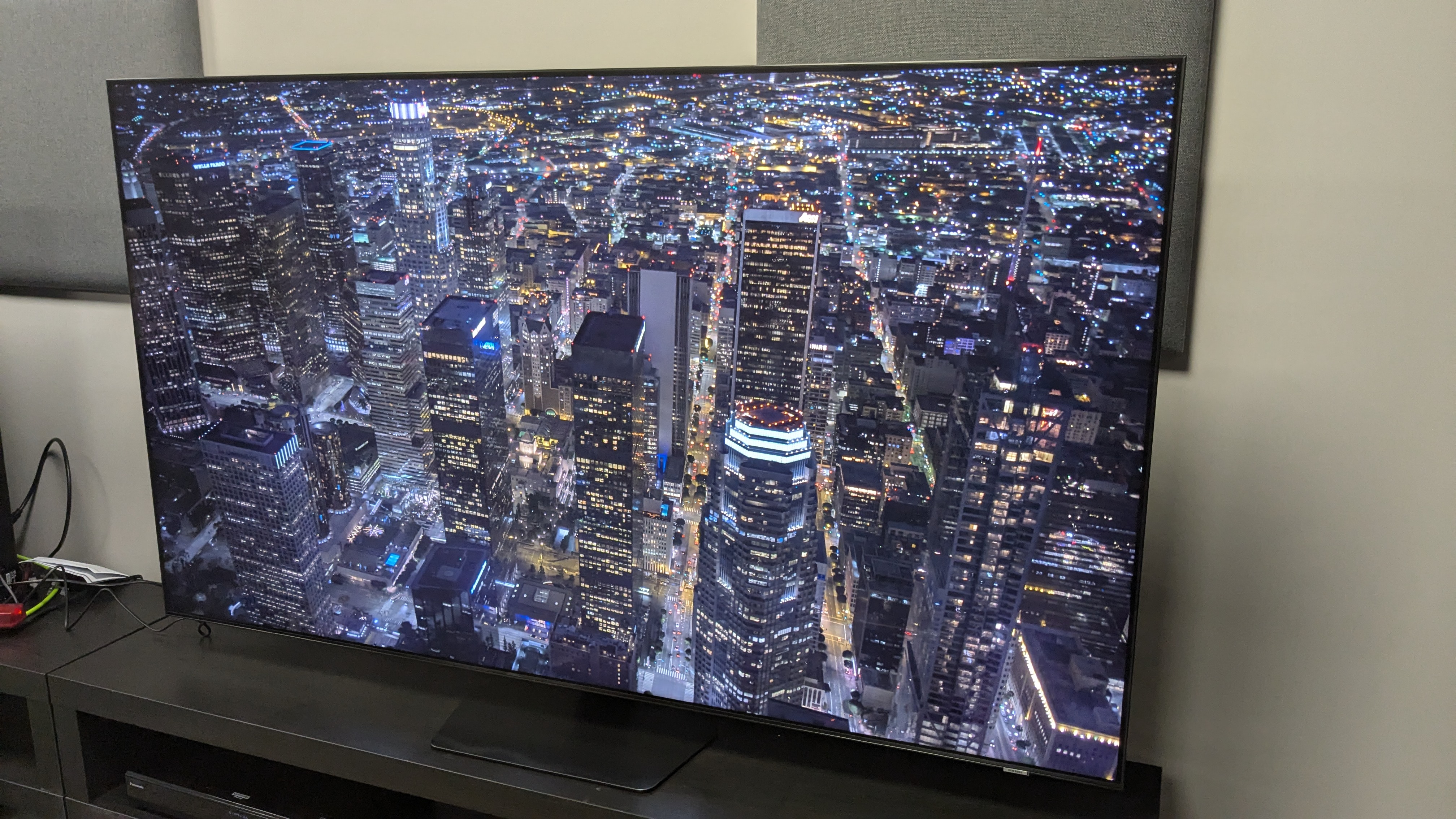
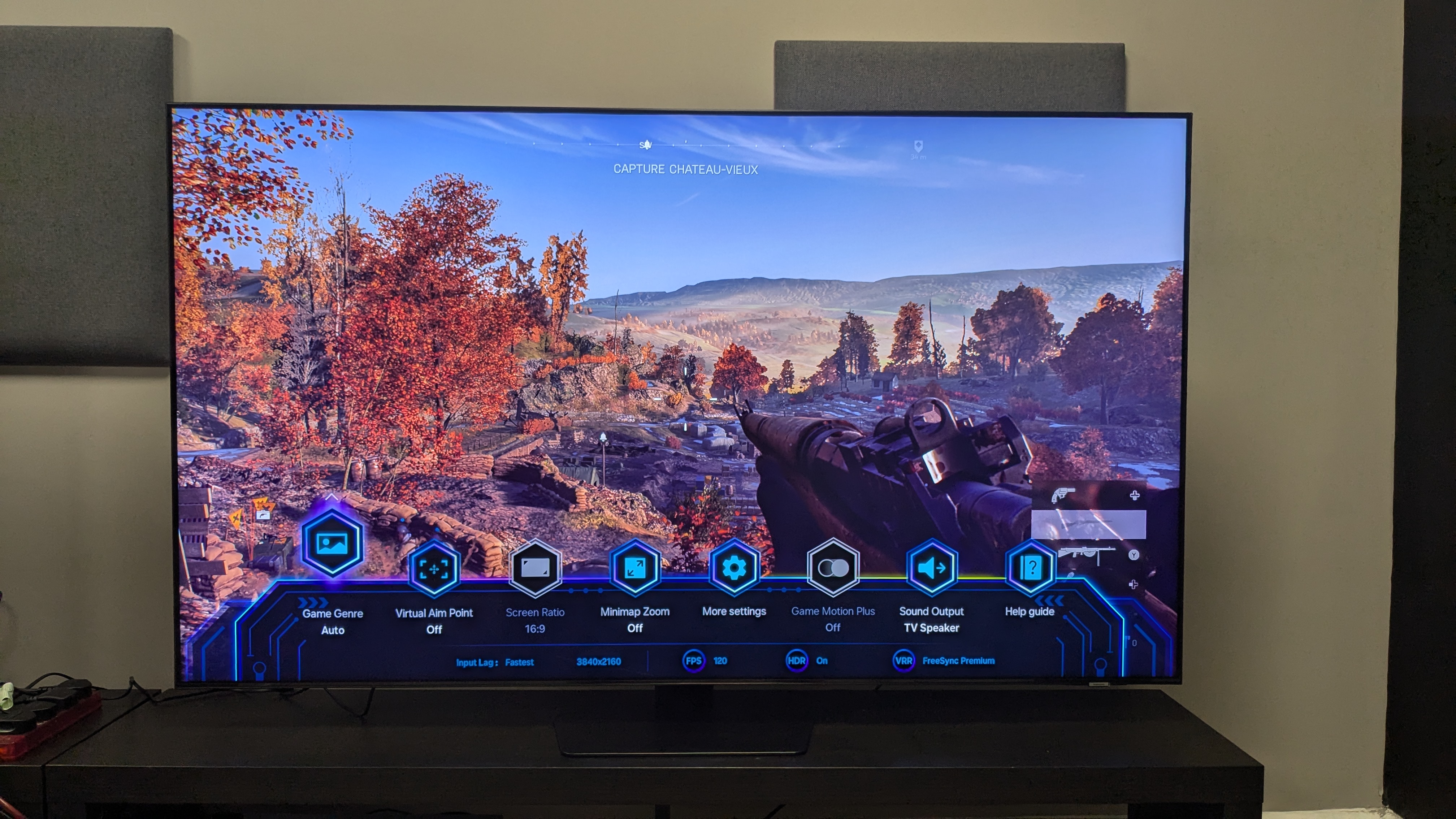

Specifications
Reasons to buy
Reasons to avoid
✅ You have a bright viewing environment: The QN90D's high brightness and anti-reflection screen effectively reduce screen glare in bright rooms.
✅ You watch a lot of sports: The QN90D's high brightness, wide viewing angle and great motion handling make it an ideal TV for sports fans.
❌ You want the best value mini-LED: Mini-LED TVs from Hisense and TCL can provide similarly great performance for less money.
❌ You want Dolby Vision HDR: Same as with other TVs from Samsung, the QN90D's high dynamic range support is limited to HDR10+, HDR10, and HLG.
Watching sports on a big 75-inch screen is an incredible experience, and the 75-inch Samsung QN90D mini-LED TV seems almost custom-made for that purpose. It has an exceptionally bright picture that looks uniformly good from all angles and an anti-reflection screen to reduce glare from room lights. Motion handling is also excellent, making fast action sports, and games as well, look solid and blur-free.
When we reviewed the Samsung QN90D, peak brightness was measured at an impressive 2.192 nits and full-screen brightness at 680 nits. Those numbers rank the QN90D in the upper echelon of TV brightness, and it also has precise local dimming for deep and detailed shadows when watching movies.
It’s not just sports and movies that look great on the QN90D’s expansive 75-inch screen but games as well. With four HDMI 2.1 ports with support for up to 4K 144Hz, VRR including AMD FreeSync Premium Pro, and ALLM, the QN90D is fully kitted out with gaming features. In our tests, input lag measured an impressive 9.9ms. The QN90D also features Samsung’s Gaming Hub, which lets you play games from cloud-based services such as Xbox, Geforce Now, Utomik, Luna, and more.
For such a big TV, the QN90D is startlingly slim, measuring just under 1-inch in depth. It comes with a sturdy metal base for support, and its bezel-less display gives it an “all-picture” look. Samsung includes its eco-friendly SolarCell Remote, which draws power from an integrated solar panel and can also be charged through its USB-C port. Despite being slim, the QN90D has powerful built-in sound, with its 4.2.2-channel, 60W built-in speakers delivering accurate sound effects and dialogue placement with the help of Samsung’s Object Tracking Sound+ feature.
Read our full Samsung QN90D review
How to choose the best 75-inch TV
Is a 75-inch TV too big for a living room?
While many promotional and marketing images might lead you to believe that a 75-inch TV is too big for a living room, this really isn't the case for lounges of an average size.
So long as you have a table or stand that's accommodating to the TV's large size, and create adequate space for peripherals like soundbars and speakers, a 75-inch TV won't take up as much real estate as you might think. And if you're thinking of mounting a 75-inch TV on wall using one of the best TV wall mounts, you'll also want to consider how much space it'll take up on the wall.
Do keep in mind that you may have to rearrange the room around the TV for the best possible viewing experience, however.
How far should you sit from a 75-inch TV?
For optimal viewing with a 75-inch TV, we'd recommend sitting roughly 50-60 inches away from the screen for a fully immersive experience. Rearranging the furniture in your room to accommodate this will help, and it could be as simple as slightly adjusting your couch.
How much does a 75-inch TV cost?
The very best 75-inch TVs can vary wildly in price. The LG G3, for example, will run you an eye-watering $3,500 / £2,770 (around AU$5,400), while Hisense present a much more affordable option in the U8K at $1,300 (around £1,000 / AU$2,000).
The difference in price here seems drastic considering both examples offer excellent picture quality. It all depends on how much you're willing to pay for extra bells and whistles and design sensibilities, such as the G3's wonderfully thin design and best-in-class options for gaming.
Do be extra wary about TV sales that sound too good to be true, though. If you see a 75-inch 4K TV for around $600 / £600, it's probably going to let you down in terms of picture performance with bad backlighting and cheap edge-lit LED panels that produce poor black levels and contrast.
During key sales periods such as Black Friday, of course, those pricing expectations are a little different, so in any case it's worth paying attention to how much a 75-inch TV was at launch.
Some Hisense TVs can have a high launch price and quickly undercut it for a sense of value, and often you can get a good discount at least a few months after release, but in general you should be looking for the largest discount compared to a previous price, rather than just the cheapest 75-inch TV out there. And if you're low on cash, you should probably be opting for a decent 65-inch TV, rather than a half-baked 75-inch one.
Once you get to a 75-inch size, too, 8K TVs really become a smart investment too. That's because the greater number of pixels over 4K (33 million rather than eight million) ensures far greater detail at that size. A 55-inch 8K TV doesn't really make much of a difference, but a 75-inch 8K TV certainly does.
What’s the difference between an OLED 75-inch TV and an LED one?
If you want the quick answer, OLED TVs offer superior picture quality at a higher price than LED TVs. That really is the abbreviated version, though. While we generally rate OLED as the premium television technology, LED sets have their strengths, too.
For one thing, the best LED TVs are generally brighter than OLED panels, which makes them better suited for daytime viewing (particularly in rooms that get a lot of sun). LEDs are also less reflective than their OLED counterparts, which again, makes them better suited for watching content in bright conditions.
Yet when it comes to contrast, OLED is king. These TVs are self-emissive, meaning they can both emit their own light without the need for a backlight and also turn off their pixels during dark scenes; leading to perfect black levels. By contrast, LED TVs still very much rely on backlights, which means their blacks are nowhere near as convincing as OLEDs.
LED backlights use dimming zones to increase or lower the brightness of sections of the screen. The more zones, the more effectively an LED TV can dim the darker parts of an image. Still, even mini-LED TVs, which have many more dimming zones than LED sets, still can’t come close to matching the infinite black levels of OLED.
Because the difference between the brightest parts of an image and the darkest areas are far more pronounced on an OLED TV than an LED TV, contrast levels on the former produce far more vivid pictures - especially when watching content at night.
OLED TVs are also closing the brightness gap on the best LED TVs thanks to quantum dot technology (Samsung started this trend with its QD-OLED sets). The likes of LG and Panasonic also have their own solution with MLA (Micro Lens Array) panels, which are decidedly brighter than old school WOLED screens.
Even the best and brightest OLED TVs are far from flawless, though. OLED burn-in is a type of screen defect that has existed since the first OLED TVs hit the mainstream market in the early 2010s. It manifests as a sort of permanent on-screen shadow that can be a result of leaving a static image on your display for multiple hours.
Though modern OLEDs have features that can help reduce this issue - like timed screensavers and pixel cleaning cycles - burn-in still exists if you’re careless with your OLED. By contrast, screen-burn is much less likely to occur in modern LED TVs.
Ultimately, OLED is definitely the superior technology than LED, but these OLED TVs are normally considerably more expensive and still aren’t without their flaws.
What should I look for in a 75-inch TV for gaming?
No matter what size of TV you’re looking to buy, be it a 42-inch set for your bedroom or a massive 75-inch television, if you’re a PS5, Xbox Series X or Nintendo Switch owner, you want a TV with a dedicated Game Mode.
Luckily, most mid- and high-end TVs have these picture presets that compared to other modes, drastically reduce screen response times (which are measured in milliseconds). The best gaming TVs are normally made by LG and Samsung, as they usually have the fastest response times - anything between 10-15ms is more than quick enough to enjoy your favourite titles in super-smooth style.
When it comes to the best 75-inch TVs for gaming, LG currently holds the crown thanks to the company’s trademark ‘Game Optimizer’. This console-focused group of settings has its own dedicated dashboard, and is designed to reduce input latency so that games feel ultra responsive.
While all the big TVs makers have some fashion of a game mode, LG’s solution is definitely the best at time of writing. Game Optimizer provides a feature-packed buffet of options designed to make games as responsive as possible. These include VRR (Variable Refresh Rate), ALLM (Automatic Low Latency Mode), Nvidia G-Sync and AMD FreeSync Premium.
What do these features do? In the case of VRR, it lessens the visual impact when games drop frames, leading to smoother, more consistent gameplay. As for G-Sync and FreeSync, Nvidia and AMD’s tech syncs the frame rate per second of a game to match your TV’s refresh rate, making FPS dips tough to spot unless you have amazingly keen eyes.
Is it worth upgrading from a 65-inch TV to a 75-inch?
This question fundamentally boils down to how much space you have to spare in your lounge/living room. If you’re lucky enough to have a huge entertainment area, and you can afford a bigger TV, then we say the upgrade to a 75-inch set is definitely worth it if you’re an avid movie watcher/gamer.
10-inches more may not sound massive, but the effect can be transformative. For context, the jump up from a 65-inch TV to a 75-incher is a substantial 33%. That’s a whole lot of extra screen real estate when you’re binging your favourite shows on the best streaming services. If you want to increase your viewing immersion, there’s no better way than by upgrading to a larger TV.
Feeling extra flush? Consider going even bigger and adding a couple of extra inches with a 77-inch TV. Some manufacturers - like LG with its OLED range - actually don’t tend to manufacture 75-inch screens, so if you want a TV like the LG C4 OLED, your options are either 77-inches or an almost absurd 83-inch model if 65” and below is too small for your tastes. If you do decide to go for a 77-incher over a 75” TV, that’s 40% more screen area than a 65-inch panel.
Whether the upgrade is ultimately worth it once again comes back to your personal situation. Living in a one bedroom apartment with limited space? Unless you want your television to completely dominate your front room, a 65-inch TV (or smaller) is probably the more sensible option. Yet if money isn’t an issue and your lounge is the size of an aircraft hanger, by all means go the 77-inch route. That extra screen size really can be a game-changer.
How we test the best 75-inch TVs
We test the TVs we selected for this best 75-inch guide not just on picture, but on every aspect including gaming performance, smart TV platform and menus, ease of use, built-in audio and even the overall physical design. We'll test out the features within the TV to make sure they're up to scratch and reflect this in our reviews.
75-inch is a big screen so you're often going to pay a premium for the very best, but we also look out for those TVs that give you value - performance without the price tag, so in this guide we've included TVs to suit every budget by testing across a wide range of prices.
We always strive to test these TVs with a variety of sources including Blu-ray, streaming, live TV, lower-resolution programs and movies and more so that we can fully test the TVs picture quality across the board, not just on the best possible picture.
Some of our reviewers will be testing with different equipment and in different conditions, but we will always aim to make this clear and to be as fair and as consistent as possible.
More 75-inch TVs we've tested
This is a listing of TVs we've reviewed that are available in a 75-inch size but didn't quite make the list above.
Samsung QN85D: The most entry-level mini-LED in Samsung's 2024 mini-LED lineup, the QN85D has a great suite of gaming features and great picture quality that make it perfect for big screen movies and gaming. It's a fine TV, but didn't make the list as the Hisense U7N and TCL C805, for the US and UK respectively, serve as better budget options with great performance and features for a cheaper price. Read our full Samsung QN85D review.
Philips OLED809/OLED909: Philips' TVs have a unique feature with Ambilight, a series of lights around the frame of the TV that project colored lights onto the wall behind for an extra layer of immersion when watching movies and playing games. Two of Philips' OLEDs, the OLED809 and OLED909, offer Ambilight but with brilliant OLED picture quality and a stack of gaming features as well as great built-in sound. However, Philips' TVs are only available in the UK and the LG C4 provides a more complete experience at a cheaper price that mean it takes the place at the top of our list. Read our full Philips OLED809 review and Philips OLED909 review.
Load next products
Hisense U6N: The Hisense U6N serves as another big screen budget option that has a mini-LED panel, even at a very affordable price. While the U6N does deliver good picture quality and gaming features for a cheap price, the Hisense U7N and TCL C805 provide better overall picture and performance for a slightly higher but still affordable price. The U6N is still a great choice for those who want a big screen for less. Read our Hisense U6N review.
Sony Bravia 9: A fantastic, ground-breaking TV that uses clever tech mixed with a superb mini-LED panel to generate OLED-rivaling contrast and black levels. However, the Sony Bravia 9's greatness comes at a price that will be a little too rich for most people, with the Samsung S95D providing a better overall value for a premium 75-inch TV. Read our full Sony Bravia 9 review.
Samsung Q60D: We complimented this budget QLED TV in our Samsung Q60D review for its detailed, colorful picture and sleek design. Despite its affordable price, mini-LED TVs with more to offer are available at a slightly higher or similar price such as the Hisense U7N.
TCL QM851G: One of the brightest TVs we've tested at TechRadar, we praised the TCL QM851G for its spectacular picture quality, powerful contrast, impressive local dimming, punchy built-in sound and excellent gaming features in our TCL QM851G review. The Hisense U8N delivers equivalent performance and value, however, and is available in regions outside of the US.
New 75-inch TVs arriving in 2025
TV makers announced a wide range of new models at the recent CES tradeshow and many of these will be available in a 75-inch screen size. We’ll be adding reviews of the new TVs as they are made available in 2025, but here are the details on the newly announced models to help guide your buying decisions.
LG’s new TVs for 2025 include the LG C5 OLED, the successor to our current best overall pick, the LG C4. According to LG, the new model will provide a slight brightness boost over the C4, but will otherwise have similar specs. LG also announced a new G5 OLED with a new “4-stack” panel design that it says will deliver both higher peak and fullscreen brightness than its current G4 OLED among other picture quality benefits.
Samsung’s CES announcements include the S95F OLED, a successor to its flagship S95D that’s our pick for best premium TV in this guide, and the QN90D mini-LED, our current best for sports pick. Both of these models will get a next-gen version of the Glare Free screen featured in the Samsung S95D, while the QN90F will also have 4K 165Hz support for PC gaming. There will also be two new 8K TV series available in a 75-inch screen size, the QN990F and QN900F. The flagship QN990F will also get a Glare Free screen and will come with a new 8K wireless One Connect Box for a wireless connection from sources, with support for 8K 120Hz at up to 10 meters.
TCL announced its new QM6K mini-LED Series, which will be available in a 75-inch screen size in the US. The company is claiming that the new TVs will be significantly brighter than its 2024 models and will feature 144Hz refresh rate along with 288Hz VRR support for gaming.
Panasonic’s CES announcements include a new Z95B OLED TV that uses a 'Primary RGB Tandem Panel’ for increased brightness and improved color performance. Last year’s Panasonic Z95A OLED was only available in a 65-inch screen size in the US, but the new model will be sold in a 77-inch size as well and features a new 5.1.2-channel Dolby Atmos sound system tuned by Technics. Along with the Z95B, the company also announced a new W95B series with an improved mini-LED panel and a budget W70B LED TV series.
Latest updates to this 75-inch TV guide
March 11, 2025
Added in Quick list product grid with quick summaries for each entry on the list. Added gallery of images to each entry. Added more models to the 'Other 75-inch TVs we've tested' section.
February 13, 2025
Added sections 'What’s the difference between an OLED 75-inch TV and an LED one?' and 'What should I look for in a 75-inch TV for gaming?' to 'How to choose'.
January 16, 2025
Added section 'New TVs for 2025' with info on new models announced at the CES tradeshow.
December 23, 2024
The LG C4 is our new top choice, due to stock of the Samsung S90C running very low now. We also added more information about other TVs we've tested that aren't on the list.
Read more updates
November 25, 2024
Changed the Sony A80L for the Sony Bravia 8 as best for sound.
November 15, 2024
Added section: Best 75-inch TVs on Black Friday.
October 24 2024
Replaced the Samsung CU8000 with the TCL C805 as 'best budget 75-inch TV in the UK'.
September 26 2024
Replaced Samsung QN90C with Samsung QN90D as 'best 75-inch TV for sports'
August 28 2024
Replaced Sony 75X90L with Hisense 75U8N as 'best mid-range 75-inch TV.'
July 31 2024
Added boxes with two reasons to buy and avoid for each entry labelled 'Buy it if' and 'Don't buy it if'
July 2 2024
Replaced Hisense U8K with Hisense U7N as 'best budget (US)'.
June 5 2024
Replaced Sony X90L with LG C4 as 'best 75-inch for gaming'. Sony X90L replaced Samsung Q80C as 'best mid-range 75-inch TV'.
May 6 2024
Replaced Samsung S95C with new Samsung S95D as 'best premium' option.
March 11 2024
Added info on new 75-77-inch TVs announced for 2024 to 'How to Choose' section.
February 7 2024
Introduced 'quick list' grid which summarizes each entry in the list and why we've chosen them for those looking for quick answers.
Get daily insight, inspiration and deals in your inbox
Sign up for breaking news, reviews, opinion, top tech deals, and more.

Al Griffin has been writing about and reviewing A/V tech since the days LaserDiscs roamed the earth, and was previously the editor of Sound & Vision magazine.
When not reviewing the latest and greatest gear or watching movies at home, he can usually be found out and about on a bike.